- Deutschland
You have exceeded the number of Favourites. Please remove some of them to add more.
Create your own Singapore guide with up to 12 of your Favourites.
As you browse through our site, add pages to your Favourites by clicking on the star button within every article.
To access and edit all your Favourites, click on the star button at the top right corner of every page throughout our site.

COVID-19 General Advisory for Travellers
What to do if you are unwell or test positive for covid-19 while visiting singapore .
Should you feel unwell or tested positive for COVID-19
Travellers who are unwell or tested positive for COVID-19 should receive medical advice if they fulfil any of the following criteria.
- Aged 60 and older
- Have Acute Respiratory Infection (ARI) symptoms
- Immunocompromised or have concurrent medical conditions such as obesity (e.g., adults with a BMI ≥30), hypertension, diabetes, chronic heart and lung diseases, kidney diseases on dialysis, hypercoagulable states, cancer, or patients on drugs that cause immunosuppression
- Persons with Down’s syndrome
Persons with mild ARI symptoms should stay at home until symptoms resolve.
If there is a need to go out while symptomatic, or if asymptomatic but test positive for COVID-19, exercise social responsibility by observing the following practices.
- Minimise social interactions
- Wear a mask
- Avoid crowded places
- Do not visit vulnerable places such as hospitals and nursing homes
- Do not have contact with vulnerable persons such as the elderly
Refer to https://www.moh.gov.sg/licensing-and-regulation/telemedicine . Should you test positive on a COVID-19 PCR test, please note that you will be assigned a separate telemedicine provider for medical support while you are serving your Isolation, and should not reach out to the telemedicine providers on this list.
Self-administered ART kits can be purchased online or from pharmacies and drugstores around Singapore. Hotels may also carry self-administered kits for purchase. If you test positive on an ART and are self-isolating, you should purchase your ART kits through contactless methods and should not leave your accommodation to do so.
By default, travellers should recover in hotels or residential accommodation unless they are 1) partially vaccinated or unvaccinated, aged 50 years and above 2) Vaccinated, aged 80 years and above 3) Children aged below 3 months and children aged 3 months to below 3 years, who have been assessed by a medical professional to be clinically unsuitable to recover at home or in a hotel. These travellers will be advised by MOH to be transferred to an appropriate care facility. Travellers may opt to recover at home if they own a residence in Singapore. Travellers may not check into another hotel for recovery, or change their isolation venues (e.g. transfer hotels) once they have begun isolating. They will only be released upon fulfilling the recovery conditions.
Health Risk Notices (HRN) are issued to persons identified as close contacts of a COVID-positive case, if declared a close contact by a COVID-positive case.

- Board Of Directors
- Organisation Chart
- Achieving Quality Tourism
- Legislation
- Corporate Governance
- Invest in Tourism
- ASEAN Economic Community
- Media Releases
- Corporate Publications
- Newsletters
- Statistics & Market Insights Overview
- Tourism Statistics
- Industries Overview
- Arts & Entertainment
- Attractions
- Dining & Retail
- Integrated Resorts
- Meetings, Incentives, Conventions & Exhibitions
- Tourist Guides
- Travel Agents
- Assistance and Licensing Overview
- Tourism Sustainability Programme (TSP)
- Singapore Visitor Centre (SVC) Network Partnership
- Grants Overview
- Licensing Overview
- Tax Incentives Overview
- Other Assistance & Resources Overview
- SG Stories Content Fund Season 2
- Marketing Partnership Programme
- SingapoReimagine Marketing Programme
- Singapore On-screen Fund
- Hotel Licensing Regulations
- Data College
- Trade Events and Activities
- Trade Events Overview
- SingapoReimagine Global Conversations
- SingapoRediscovers Vouchers
- Made With Passion
- Joint Promotion Opportunities
- Procurement Opportunities for STB's Overseas Regional Offices
- Product And Industry Updates
- Rental of F1 Pit Building
- Singapore Tourism Accelerator
- Sponsorship Opportunities
- STB Marketing College
- Tourism Innovation Challenge
- Harnessing Technology to Emerge Stronger Post COVID-19
- Tourism Transformation Index (TXI)
- New Tourism Development in Jurong Lake District
- International Trade Events
- Singapore Familiarization Trips
- EVA-Ready Programme
- Tourism Industry Conference
- Expo 2025 Sponsorship and Partnership Opportunities
- Students & Fresh Graduates
- Professionals
- Attractions Operator
- Business/Leisure Event Organiser
- Media Professional
- Tourist Guide
- Travel Agent
Advisory on COVID-19 for Travellers and Tourism Businesses
13 February 2023
General Advisory for Travellers
1. Singapore is open to all travellers without quarantine. This includes non-fully vaccinated travellers. Covid-19 pre-departure tests are not required. More details are available here. 2. Depending on the destination you are travelling from, mask-wearing aboard flights and ferries to Singapore may be required. Travellers are advised to check with the respective transport operator on the mask-wearing requirement prior to their trip.
3. Singapore has stepped down all COVID-19 measures and mask wearing is not required except in healthcare settings. However, do practise good personal hygiene and wear a mask if you are unwell.
USEFUL LINKS

For MOH's latest measures, please click here.
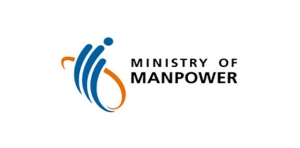
For MOM's latest advisories, please click here.
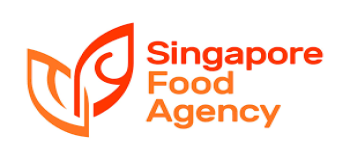
For SFA's requirement for food handlers

For ESG's latest SMMs, please click here .
About the Organisation
What industry does your organization fall within, what best describes the key intent of the project that your organisation is seeking funding for, is your organisation a singapore-registered legal entity, is your organisation an association, is the project able to achieve one or more of the following outcome.
- Increase no. of sailings to/from Singapore
- Increase no. of foreign cruise passengers to Singapore through sailings to/from Singapore
- Increase no. of pre/post nights for cruise passengers sailing to/from Singapore
- Increase capability of industry players via cruise-specific industry training programmes
- Strengthen the potential/ attractiveness of cruising in Singapore and/or Southeast Asia
Is the project able to achieve one or more of the following?
- Improve visitor satisfaction (especially foreign visitors)
- Increase footfall
- Increase revenue
- Significant branding and PR value
Is the project able to attract foreign visitors and contribute to foreign visitors' spend?
Who will be the main target audience of your project, is your project innovative and/or a new event in singapore with tourism potential, what best describes your project, does the event have proven track records in singapore or overseas, and/or growth in tourism value such as growing foreign visitorship, and/or enhancement of precinct vibrancy etc, does the project have a clear tourism focus (e.g. tourism-related trainings, tourism companies taking on capability development initiatives or technology companies creating technology products and services for the tourism businesses), what best describes your market feasibility study project.
Based on your selection, the following STB grant/s may be applicable for your project:
Please note that projects that have commenced prior to Singapore Tourism Board's offer may not be eligible for grant support. Examples where projects are deemed as having commenced include:
- Applicant has started work on the project e.g. tender has been called.
- Applicant has made payment(s) to any supplier, vendor or third party.
- Applicant has signed a contractual agreement with any supplier, vendor or third party.
You are using an outdated browser. Upgrade your browser today or install Google Chrome Frame to better experience this site.
Singapore Traveler View
Travel health notices, vaccines and medicines, non-vaccine-preventable diseases, stay healthy and safe.
- Packing List
After Your Trip
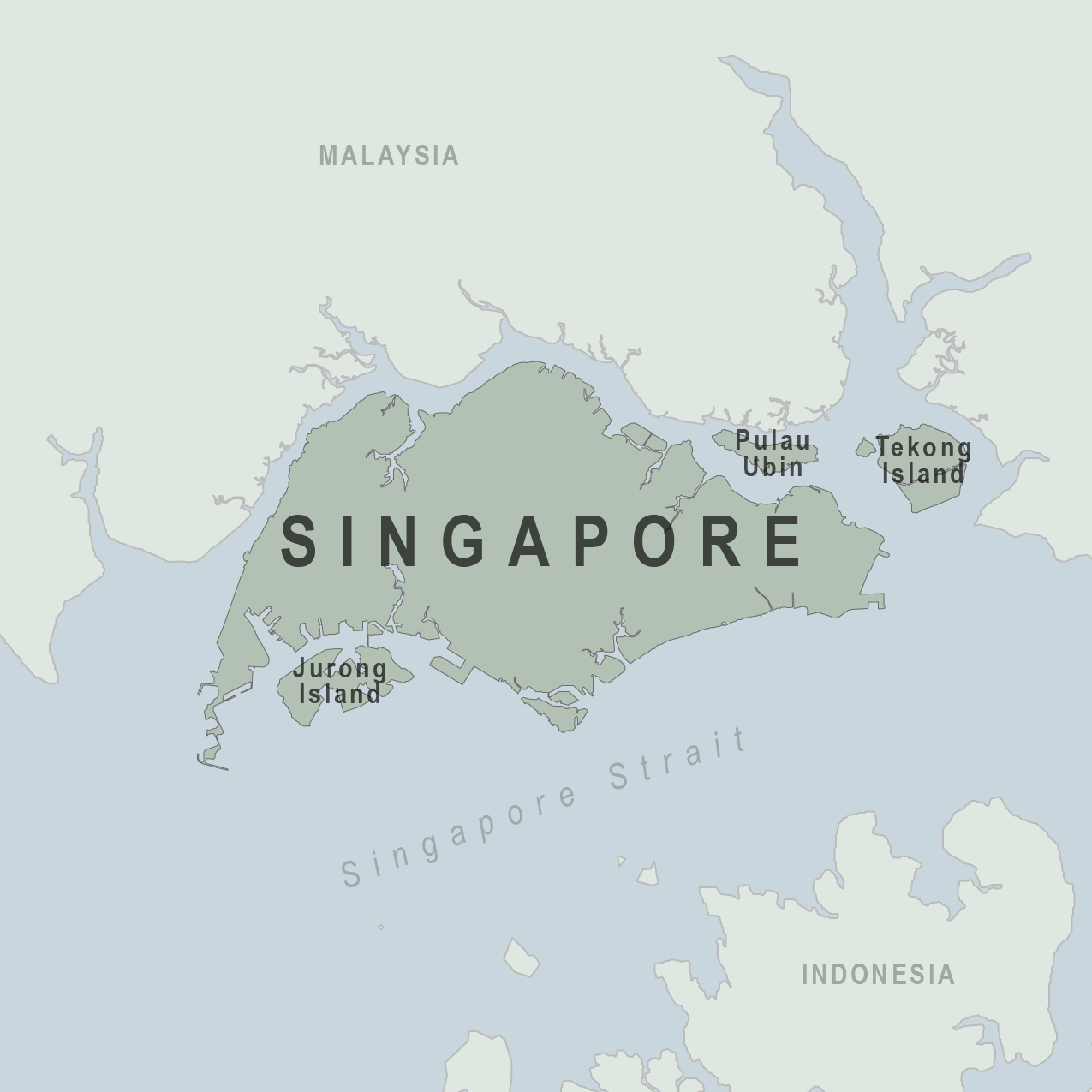
There are no notices currently in effect for Singapore.
⇧ Top
Check the vaccines and medicines list and visit your doctor at least a month before your trip to get vaccines or medicines you may need. If you or your doctor need help finding a location that provides certain vaccines or medicines, visit the Find a Clinic page.
Routine vaccines
Recommendations.
Make sure you are up-to-date on all routine vaccines before every trip. Some of these vaccines include
- Chickenpox (Varicella)
- Diphtheria-Tetanus-Pertussis
- Flu (influenza)
- Measles-Mumps-Rubella (MMR)
Immunization schedules
All eligible travelers should be up to date with their COVID-19 vaccines. Please see Your COVID-19 Vaccination for more information.
COVID-19 vaccine
Hepatitis A
Recommended for unvaccinated travelers one year old or older going to Singapore.
Infants 6 to 11 months old should also be vaccinated against Hepatitis A. The dose does not count toward the routine 2-dose series.
Travelers allergic to a vaccine component or who are younger than 6 months should receive a single dose of immune globulin, which provides effective protection for up to 2 months depending on dosage given.
Unvaccinated travelers who are over 40 years old, immunocompromised, or have chronic medical conditions planning to depart to a risk area in less than 2 weeks should get the initial dose of vaccine and at the same appointment receive immune globulin.
Hepatitis A - CDC Yellow Book
Dosing info - Hep A
Hepatitis B
Recommended for unvaccinated travelers younger than 60 years old traveling to Singapore. Unvaccinated travelers 60 years and older may get vaccinated before traveling to Singapore.
Hepatitis B - CDC Yellow Book
Dosing info - Hep B
Cases of measles are on the rise worldwide. Travelers are at risk of measles if they have not been fully vaccinated at least two weeks prior to departure, or have not had measles in the past, and travel internationally to areas where measles is spreading.
All international travelers should be fully vaccinated against measles with the measles-mumps-rubella (MMR) vaccine, including an early dose for infants 6–11 months, according to CDC’s measles vaccination recommendations for international travel .
Measles (Rubeola) - CDC Yellow Book
Singapore is free of dog rabies. However, rabies may still be present in wildlife species, particularly bats. CDC recommends rabies vaccination before travel only for people working directly with wildlife. These people may include veterinarians, animal handlers, field biologists, or laboratory workers working with specimens from mammalian species.
Rabies - CDC Yellow Book
Recommended for most travelers, especially those staying with friends or relatives or visiting smaller cities or rural areas.
Typhoid - CDC Yellow Book
Dosing info - Typhoid
Yellow Fever
Required for travelers ≥1 year old arriving from countries with risk for YF virus transmission; this includes >12-hour airport transits or layovers in countries with risk for YF virus transmission. 1
Yellow Fever - CDC Yellow Book
Avoid contaminated water
Leptospirosis
How most people get sick (most common modes of transmission)
- Touching urine or other body fluids from an animal infected with leptospirosis
- Swimming or wading in urine-contaminated fresh water, or contact with urine-contaminated mud
- Drinking water or eating food contaminated with animal urine
- Avoid contaminated water and soil
Clinical Guidance
Avoid bug bites.
Chikungunya
- Mosquito bite
- Avoid Bug Bites
- Mosquito bite
- An infected pregnant woman can spread it to her unborn baby
Airborne & droplet
- Breathing in air or accidentally eating food contaminated with the urine, droppings, or saliva of infected rodents
- Bite from an infected rodent
- Less commonly, being around someone sick with hantavirus (only occurs with Andes virus)
- Avoid rodents and areas where they live
- Avoid sick people
Tuberculosis (TB)
- Breathe in TB bacteria that is in the air from an infected and contagious person coughing, speaking, or singing.
Learn actions you can take to stay healthy and safe on your trip. Vaccines cannot protect you from many diseases in Singapore, so your behaviors are important.
Eat and drink safely
Food and water standards around the world vary based on the destination. Standards may also differ within a country and risk may change depending on activity type (e.g., hiking versus business trip). You can learn more about safe food and drink choices when traveling by accessing the resources below.
- Choose Safe Food and Drinks When Traveling
- Water Treatment Options When Hiking, Camping or Traveling
- Global Water, Sanitation and Hygiene | Healthy Water
- Avoid Contaminated Water During Travel
You can also visit the Department of State Country Information Pages for additional information about food and water safety.
Prevent bug bites
Although Singapore is an industrialized country, bug bites here can still spread diseases. Just as you would in the United States, try to avoid bug bites while spending time outside or in wooded areas.
What can I do to prevent bug bites?
- Cover exposed skin by wearing long-sleeved shirts, long pants, and hats.
- Use an appropriate insect repellent (see below).
- Consider using permethrin-treated clothing and gear if spending a lot of time outside. Do not use permethrin directly on skin.
What type of insect repellent should I use?
- FOR PROTECTION AGAINST TICKS AND MOSQUITOES: Use a repellent that contains 20% or more DEET for protection that lasts up to several hours.
- Picaridin (also known as KBR 3023, Bayrepel, and icaridin)
- Oil of lemon eucalyptus (OLE) or para-menthane-diol (PMD)
- 2-undecanone
- Always use insect repellent as directed.
What should I do if I am bitten by bugs?
- Avoid scratching bug bites, and apply hydrocortisone cream or calamine lotion to reduce the itching.
- Check your entire body for ticks after outdoor activity. Be sure to remove ticks properly.
What can I do to avoid bed bugs?
Although bed bugs do not carry disease, they are an annoyance. See our information page about avoiding bug bites for some easy tips to avoid them. For more information on bed bugs, see Bed Bugs .
For more detailed information on avoiding bug bites, see Avoid Bug Bites .
Stay safe outdoors
If your travel plans in Singapore include outdoor activities, take these steps to stay safe and healthy during your trip:
- Stay alert to changing weather conditions and adjust your plans if conditions become unsafe.
- Prepare for activities by wearing the right clothes and packing protective items, such as bug spray, sunscreen, and a basic first aid kit.
- Consider learning basic first aid and CPR before travel. Bring a travel health kit with items appropriate for your activities.
- If you are outside for many hours in the heat, eat salty snacks and drink water to stay hydrated and replace salt lost through sweating.
- Protect yourself from UV radiation : use sunscreen with an SPF of at least 15, wear protective clothing, and seek shade during the hottest time of day (10 a.m.–4 p.m.).
- Be especially careful during summer months and at high elevation. Because sunlight reflects off snow, sand, and water, sun exposure may be increased during activities like skiing, swimming, and sailing.
- Very cold temperatures can be dangerous. Dress in layers and cover heads, hands, and feet properly if you are visiting a cold location.
Stay safe around water
- Swim only in designated swimming areas. Obey lifeguards and warning flags on beaches.
- Do not dive into shallow water.
- Avoid swallowing water when swimming. Untreated water can carry germs that make you sick.
- Practice safe boating—follow all boating safety laws, do not drink alcohol if you are driving a boat, and always wear a life jacket.
Keep away from animals
Most animals avoid people, but they may attack if they feel threatened, are protecting their young or territory, or if they are injured or ill. Animal bites and scratches can lead to serious diseases such as rabies.
Follow these tips to protect yourself:
- Do not touch or feed any animals you do not know.
- Do not allow animals to lick open wounds, and do not get animal saliva in your eyes or mouth.
- Avoid rodents and their urine and feces.
- Traveling pets should be supervised closely and not allowed to come in contact with local animals.
- If you wake in a room with a bat, seek medical care immediately. Bat bites may be hard to see.
All animals can pose a threat, but be extra careful around dogs, bats, monkeys, sea animals such as jellyfish, and snakes. If you are bitten or scratched by an animal, immediately:
- Wash the wound with soap and clean water.
- Go to a doctor right away.
- Tell your doctor about your injury when you get back to the United States.
Reduce your exposure to germs
Follow these tips to avoid getting sick or spreading illness to others while traveling:
- Wash your hands often, especially before eating.
- If soap and water aren’t available, clean hands with hand sanitizer (containing at least 60% alcohol).
- Don’t touch your eyes, nose, or mouth. If you need to touch your face, make sure your hands are clean.
- Cover your mouth and nose with a tissue or your sleeve (not your hands) when coughing or sneezing.
- Try to avoid contact with people who are sick.
- If you are sick, stay home or in your hotel room, unless you need medical care.
Avoid sharing body fluids
Diseases can be spread through body fluids, such as saliva, blood, vomit, and semen.
Protect yourself:
- Use latex condoms correctly.
- Do not inject drugs.
- Limit alcohol consumption. People take more risks when intoxicated.
- Do not share needles or any devices that can break the skin. That includes needles for tattoos, piercings, and acupuncture.
- If you receive medical or dental care, make sure the equipment is disinfected or sanitized.
Know how to get medical care while traveling
Plan for how you will get health care during your trip, should the need arise:
- Carry a list of local doctors and hospitals at your destination.
- Review your health insurance plan to determine what medical services it would cover during your trip. Consider purchasing travel health and medical evacuation insurance for things your regular insurance will not cover.
- Carry a card that identifies, in the local language, your blood type, chronic conditions or serious allergies, and the generic names of any medicines you take.
- Bring copies of your prescriptions for medicine and for eye glasses and contact lenses.
- Some prescription drugs may be illegal in other countries. Call Singapore’s embassy to verify that all of your prescription(s) are legal to bring with you.
- Bring all the medicines (including over-the-counter medicines) you think you might need during your trip, including extra in case of travel delays. Ask your doctor to help you get prescriptions filled early if you need to.
Many foreign hospitals and clinics are accredited by the Joint Commission International. A list of accredited facilities is available at their website ( www.jointcommissioninternational.org ).
Select safe transportation
Motor vehicle crashes are the #1 killer of healthy US citizens in foreign countries.
Be smart when you are traveling on foot.
- Use sidewalks and marked crosswalks.
- Pay attention to the traffic around you, especially in crowded areas.
- Remember, people on foot do not always have the right of way in other countries.
Riding/Driving
Choose a safe vehicle.
- Choose official taxis or public transportation, such as trains and buses.
- Make sure there are seatbelts.
- Avoid overcrowded, overloaded, top-heavy buses and minivans.
- Avoid riding on motorcycles or motorbikes, especially motorbike taxis. (Many crashes are caused by inexperienced motorbike drivers.)
- Choose newer vehicles—they may have more safety features, such as airbags, and be more reliable.
- Choose larger vehicles, which may provide more protection in crashes.
Think about the driver.
- Do not drive after drinking alcohol or ride with someone who has been drinking.
- Consider hiring a licensed, trained driver familiar with the area.
- Arrange payment before departing.
Follow basic safety tips.
- Wear a seatbelt at all times.
- Sit in the back seat of cars and taxis.
- When on motorbikes or bicycles, always wear a helmet. (Bring a helmet from home, if needed.)
- Do not use a cell phone or text while driving (illegal in many countries).
- Travel during daylight hours only, especially in rural areas.
- If you choose to drive a vehicle in Singapore, learn the local traffic laws and have the proper paperwork.
- Get any driving permits and insurance you may need. Get an International Driving Permit (IDP). Carry the IDP and a US-issued driver's license at all times.
- Check with your auto insurance policy's international coverage, and get more coverage if needed. Make sure you have liability insurance.
- Avoid using local, unscheduled aircraft.
- If possible, fly on larger planes (more than 30 seats); larger airplanes are more likely to have regular safety inspections.
- Try to schedule flights during daylight hours and in good weather.
Helpful Resources
Road Safety Overseas (Information from the US Department of State): Includes tips on driving in other countries, International Driving Permits, auto insurance, and other resources.
The Association for International Road Travel has country-specific Road Travel Reports available for most countries for a minimal fee.
Traffic flows on the left side of the road in Singapore.
- Always pay close attention to the flow of traffic, especially when crossing the street.
- LOOK RIGHT for approaching traffic.
Maintain personal security
Use the same common sense traveling overseas that you would at home, and always stay alert and aware of your surroundings.
Before you leave
- Research your destination(s), including local laws, customs, and culture.
- Monitor travel advisories and alerts and read travel tips from the US Department of State.
- Enroll in the Smart Traveler Enrollment Program (STEP) .
- Leave a copy of your itinerary, contact information, credit cards, and passport with someone at home.
- Pack as light as possible, and leave at home any item you could not replace.
While at your destination(s)
- Carry contact information for the nearest US embassy or consulate .
- Carry a photocopy of your passport and entry stamp; leave the actual passport securely in your hotel.
- Follow all local laws and social customs.
- Do not wear expensive clothing or jewelry.
- Always keep hotel doors locked, and store valuables in secure areas.
- If possible, choose hotel rooms between the 2nd and 6th floors.
Healthy Travel Packing List
Use the Healthy Travel Packing List for Singapore for a list of health-related items to consider packing for your trip. Talk to your doctor about which items are most important for you.
Why does CDC recommend packing these health-related items?
It’s best to be prepared to prevent and treat common illnesses and injuries. Some supplies and medicines may be difficult to find at your destination, may have different names, or may have different ingredients than what you normally use.
If you are not feeling well after your trip, you may need to see a doctor. If you need help finding a travel medicine specialist, see Find a Clinic . Be sure to tell your doctor about your travel, including where you went and what you did on your trip. Also tell your doctor if you were bitten or scratched by an animal while traveling.
For more information on what to do if you are sick after your trip, see Getting Sick after Travel .
Map Disclaimer - The boundaries and names shown and the designations used on maps do not imply the expression of any opinion whatsoever on the part of the Centers for Disease Control and Prevention concerning the legal status of any country, territory, city or area or of its authorities, or concerning the delimitation of its frontiers or boundaries. Approximate border lines for which there may not yet be full agreement are generally marked.
Other Destinations
If you need help finding travel information:
Message & data rates may apply. CDC Privacy Policy
File Formats Help:
- Adobe PDF file
- Microsoft PowerPoint file
- Microsoft Word file
- Microsoft Excel file
- Audio/Video file
- Apple Quicktime file
- RealPlayer file
- Zip Archive file
Exit Notification / Disclaimer Policy
- The Centers for Disease Control and Prevention (CDC) cannot attest to the accuracy of a non-federal website.
- Linking to a non-federal website does not constitute an endorsement by CDC or any of its employees of the sponsors or the information and products presented on the website.
- You will be subject to the destination website's privacy policy when you follow the link.
- CDC is not responsible for Section 508 compliance (accessibility) on other federal or private website.
- Entering, Transiting and Departing
Entering Singapore
To ensure a smooth journey, travellers seeking to enter Singapore should comply with the Entry and Public Health requirements listed below.
1) General Entry Requirements
To enter Singapore, travellers must meet the following immigration requirements:
i) Passport Validity
- Have minimum 6-month passport validity if you are not a Singapore passport holder
- Short term travellers holding a passport or travel document from a visa-required country/region must apply for a Visa
- Visa-required travellers can use the Visa-Free Transit Facility for stay of less than 96 hours in Singapore, if eligible
iii) Security and Immigration Processes on Arrival
- Ensure that you do not bring prohibited items into Singapore
- Familiarise yourself with immigration/customs clearance procedures , including whether you are eligible for automated clearance
- Short-Term travellers should have sufficient cash and proof of onward travel (tickets, visas), and ensure that you do not stay beyond your visit pass validity. You may retrieve your e-Pass after arrival using the e-Pass Enquiry Portal or check your visit pass validity using the visit pass validity tool .
- Those transiting/transferring through Singapore without seeking immigration clearance; and
- Singapore citizens, Permanent Residents and Long-Term Pass Holders entering via land checkpoints.
Submission of SGAC is Free and can be done via the SGAC e-Service or MyICA Mobile app . Please refer to SGAC with Electronic Health Declaration for more information.
Short Term Visitors
- Visitors who wish to stay beyond the period of stay granted can apply for a visit pass extension online using the e-Service . Applications are subject to approval.
- Travellers on short-term visit pass are also not permitted to engage in any business, professional or paid employment activities when in Singapore. Overstaying is also a punishable offence in Singapore.
2) Public Health Requirements
To avoid tests and quarantine, travellers must fulfil the public health requirements below. Travellers who cannot meet the public health requirements and refuse any test(s) and/or quarantine may be turned away from Singapore.
Produce an International Certificate of Vaccination for Yellow Fever , if you have visited any country at risk of Yellow Fever transmission in the six (6) days prior to arrival in Singapore.
Travellers must serve quarantine for six (6) days from date of departure from countries with risk of yellow fever transmission if they cannot meet the requirement. Quarantine also applies to those who are ineligible to receive the vaccination e.g., children aged one year and below and individuals with contraindications, and travellers whose yellow fever vaccination certificate has yet to become valid.
There are no longer any COVID-19 measures for travellers arriving in Singapore from 13 Feb 2023 , regardless of vaccination status or traveller profile.
Related Links
- Entry for Sea Crew/Pleasure Craft Owners
- Cargo and Postal Article Requirements
- Woodlands and Tuas Checkpoints Traffic Updates
- Requirements for Transiting in Singapore
- Taking Cash In and Out of Singapore
- Use of QR Code for Immigration Clearance at Woodlands and Tuas Checkpoints
Guests leave Singapore cruise after nearly 3,000 confined onboard over COVID-19 case
- Infection confirmed in a passenger on 'cruise to nowhere'
- Nearly 3,000 passengers, crew on Genting Cruise Lines ship
- Ashore, Singapore marks highest new COVID tally in months
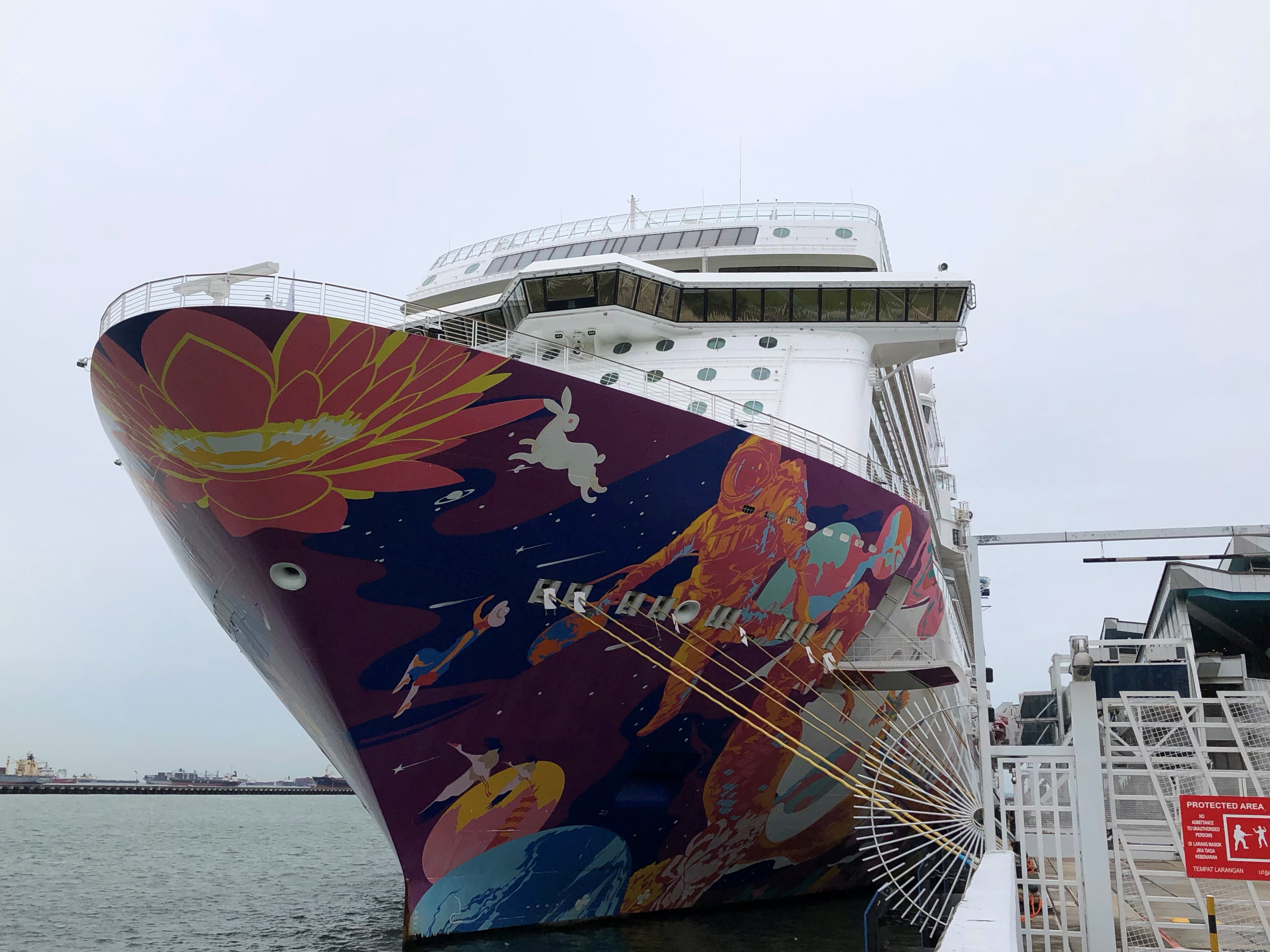
The Reuters Daily Briefing newsletter provides all the news you need to start your day. Sign up here.
Reporting by Chen Lin and Aradhana Aravindan in Singapore; Writing by Ed Davies; Editing by Richard Pullin and Mark Heinrich
Our Standards: The Thomson Reuters Trust Principles. , opens new tab
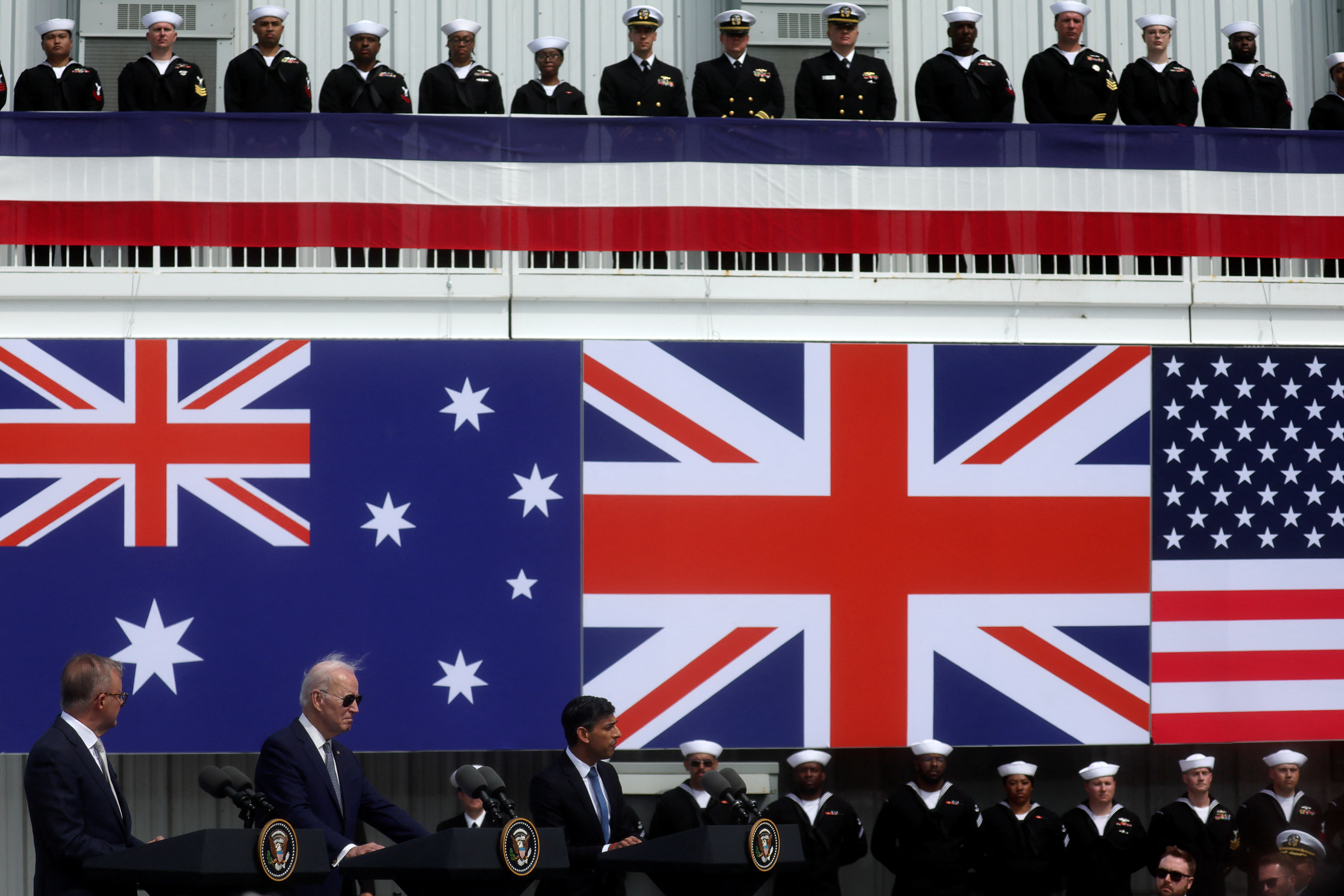
Russia's foreign minister arrives in China to talk Ukraine, Asia-Pacific
Russia's top diplomat Sergei Lavrov arrived in China, the Russian foreign ministry said on Monday, for what Moscow had said was talks on the war in Ukraine, bilateral ties and the situation in the Asia-Pacific region.
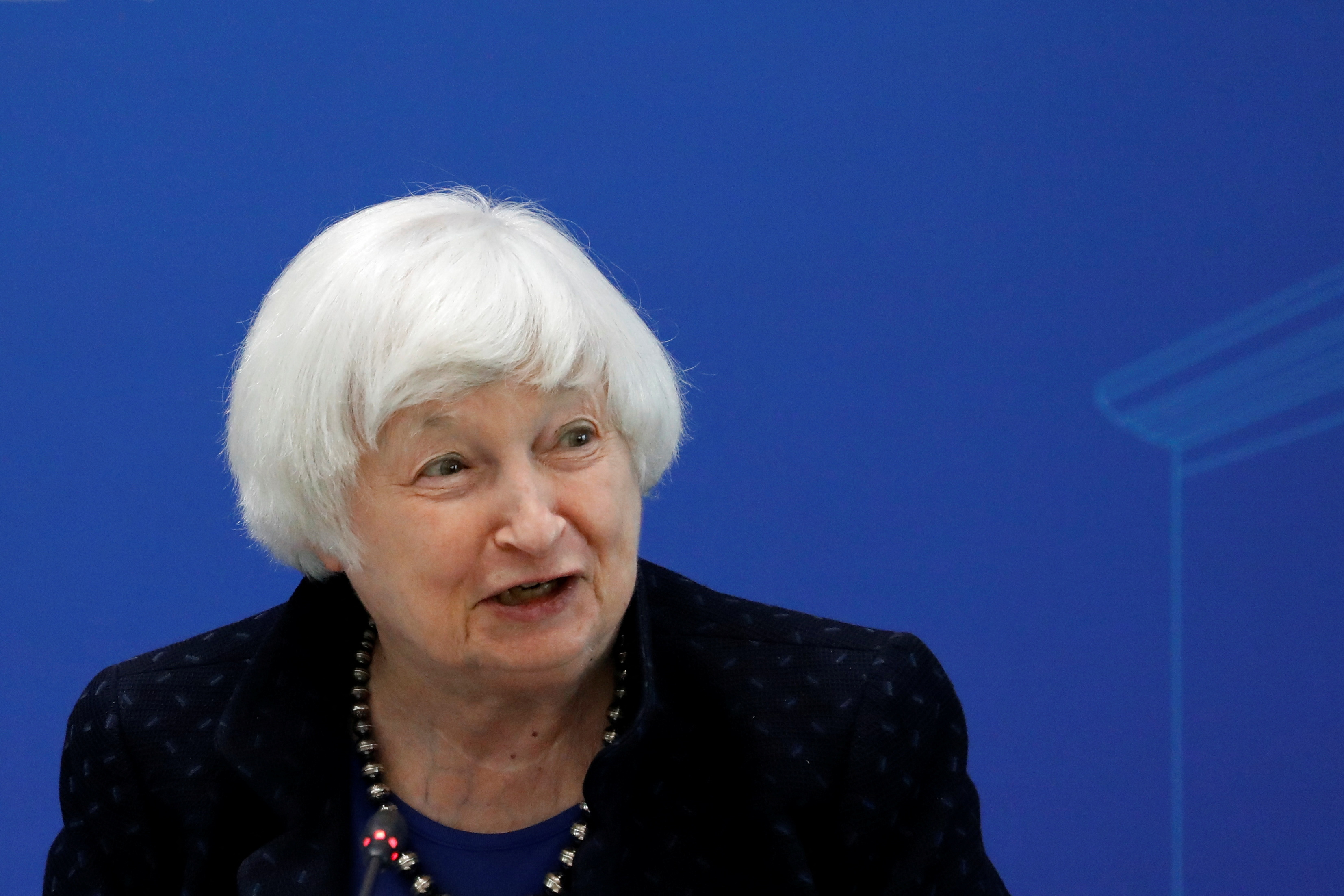
- Ministry of Health
- Overview of Diseases
Travel Advisory
Health Advisory for Travellers The Ministry of Health would like to advise all travellers visiting any country to be vigilant and to adopt the following precautions, where relevant: Before trip: • Visit your doctor four to six weeks before your trip for a travel health risk assessment, including advice on vaccinations required or prophylaxis recommended prior to travel. • Please take note of our yellow fever vaccination requirement to enter Singapore if you will be travelling to a country at risk for yellow fever. Refer to the following link for more details https://www.moh.gov.sg/diseases-updates/yellow-fever. • Keep up-to-date with the recommended vaccinations and boosters in the National Adult Immunisation Schedule (NAIS) or National Childhood Immunisation Schedule (NCIS). • Check and be aware of the health situation and entry requirements for your destination country. Some countries may require proof of vaccination for diseases such as yellow fever, meningococcal etc., before you are allowed entry. During trip: • Observe and practise good personal hygiene at all times. • Wash your hands regularly with soap, especially before handling food or eating, after going to the toilet, or when hands are dirty from coughing or sneezing. If water is not available, use an alcohol-based hand sanitiser that contains at least 60% alcohol. • Avoid close contact with persons who are unwell or have symptoms of infectious diseases. • Cover your mouth with a tissue when coughing or sneezing, and dispose the soiled tissue into the bin immediately. Avoid touching your face, including eyes, nose and mouth with unwashed hands after coughing or sneezing. • Eat food that have been fully cooked and wash fruits and vegetables before eating them. Avoid eating raw or undercooked meat and seafood, milk/milk products, and food prepared in unhygienic conditions. • Drink boiled water or water from sealed bottles. • Protect yourself from insect bites by using effective insect repellent (e.g. those containing DEET, Picaridin or IR3535 as the active ingredient), wearing long-sleeved clothes and long pants outdoors, and sleeping in an air-conditioned or insect-screened room, or under an insecticide-treated bed net. • Avoid feeding or touching animals, especially stray or wild animals. After trip: • Wear a mask and seek medical attention promptly if you become unwell or develop respiratory symptoms such as cough or runny nose, and inform the doctor of your travel history.
- Sustainability
- Latest News
- News Reports
- Documentaries & Shows
- TV Schedule
- CNA938 Live
- Radio Schedule
- Singapore Parliament
- Mental Health
- Interactives
- Entertainment
- Style & Beauty
- Experiences
- Remarkable Living
- Send us a news tip
- Events & Partnerships
- Business Blueprint
- Health Matters
- The Asian Traveller
Trending Topics
Follow our news, recent searches, singapore stands down covid-19 rules: what you need to know, advertisement.
From the removal of the mask requirement in public transport and some healthcare settings to scaling down financial support, here are the changes to Singapore's COVID-19 policy.
SINGAPORE: The Government announced on Thursday (Feb 9) that it will step down its COVID-19 measures and also its disease alert to the lowest level, as Singapore establishes a new endemic norm.
The Ministry of Health (MOH) said the situation in Singapore has remained “stable” in recent months, despite increased travel over the year-end period, the Northern Hemisphere winter season and China’s shift from a zero-COVID policy.
Here are the changes announced on Thursday:
BACK TO DORSCON GREEN, MTF STEPS DOWN
Singapore will move its Disease Outbreak Response System Condition (DORSCON) tier to Green from Monday, putting COVID-19 in the same category as the Middle East Respiratory Syndrome (MERS) and the H7N9 bird flu strain.
According to MOH, this is due to the mild nature of the disease, especially among those who have been vaccinated, and the minimal disruption posed to healthcare capacity and daily lives.
The DORSCON level has been maintained at Yellow – the second-lowest tier – since April last year, after more than two years at Orange.
Additionally, the ministry announced that the multi-ministry task force, first convened in January 2020 as a whole-of-Government response to the COVID-19 pandemic, would be stood down .
MOH will take over management of the COVID-19 situation, but said an appropriate multi-agency structure will be reactivated if it worsens significantly.
MASK REQUIREMENT TO BE LIFTED
From Monday, masks will no longer be mandatory on public transport as well as some healthcare and residential care settings.
However, visitors, staff and patients will still be required to wear masks in settings where there is interaction with patients as well as indoor patient-facing areas.
These include hospital wards, emergency departments, consultation rooms and waiting areas, pharmacies, clinics and nursing homes.
MOH said this will be a ministry requirement rather than mandated under the COVID-19 regulations, to better protect patients and healthcare workers from infectious diseases in general.
This does not apply to individuals who are in a hospital area not related to the “delivery of care” – such as a cafeteria or car park, MOH’s director of medical services Kenneth Mak clarified.
The ministry, however, still encouraged the public – especially the elderly and immunocompromised – to wear masks in crowded places or when meeting vulnerable people. They similarly advised those with COVID-19 symptoms or other respiratory infections to wear a mask when leaving their homes.
Other authorities may also require mask-wearing, just as the Singapore Food Agency has required food handlers to wear a mask or spit guard for food safety reasons.
BORDER MEASURES TO BE SCRAPPED
Singapore will also scrap all COVID-19 border measures from Monday, as the global pandemic situation improves and imported cases make low impact on the healthcare capacity.
All travellers, including those who are not vaccinated, will no longer have to show proof of a negative pre-departure COVID-19 test before entering Singapore.
COVID-19 travel insurance will also no longer be required for non-vaccinated visitors.
The Vaccinated Travel Framework will remain in place for reactivation if there are “international developments of concern”, such as new severe variants or signs that Singapore’s healthcare capacity is strained by imported cases.
Travellers will also be continue to be screened for infectious diseases such as Yellow Fever, MERS and Ebola.
All travellers, including Singapore residents, will still have to submit a health declaration via the SG Arrival Card e-service when entering the country.
MOH said travellers should check the Immigration and Checkpoints Authority (ICA) website for the latest border measures before entering Singapore.


Snap Insight: Where is Singapore headed in its new post-COVID-19 norm?

Trust made 'big difference' in Singapore's COVID-19 fight, says multi-ministry task force as it stands down

Mask-wearing no longer mandatory on public transport from Feb 13, as Singapore steps down COVID-19 restrictions

Singapore to scrap all COVID-19 border measures from Feb 13
Goodbye tracetogether app, safeentry.
The TraceTogether app can be uninstalled from Monday. Enterprises may also do so for the SafeEntry (Business) app.
Members of the public can also return their tokens to community clubs and centres from Monday to Mar 12. They can also do so on behalf of family members and friends.
The returned tokens will be sent for “refurbishment and recycling”, said the Smart Nation and Digital Government Office (SNDGO).
MOH said that it no longer requires those infected with COVID-19 to submit TraceTogether data, and SafeEntry data is no longer being collected. It has also deleted all identifiable TraceTogether and SafeEntry data from its servers and databases.
However, the ministry said it is useful to keep both systems ready for reactivation for the contingency, when a new, more dangerous variant of concern breaks out.
“For this purpose, registration details such as name, business UEN and mobile number will be retained in the system, to minimise the steps taken by individuals and companies to set up and re-register for TraceTogether and Safe Entry, should it be needed,” it said.
Both apps will remain available on the App Store, Google Play Store and the Huawei AppGallery.
COVID-19 PROTOCOLS TO BE REMOVED
Protocols 1-2-3, which determine what individuals should do if they are unwell or test positive for COVID-19, will be stood down from Monday, MOH said.
A new general advisory will be implemented. Under this, medically vulnerable persons who have Acute Respiratory Infection (ARI) symptoms, as well as those with severe, prolonged or worsening ARI symptoms should see a doctor.
Those with mild ARI symptoms should stay at home until symptoms resolve.
MOH said those who are symptomatic, or asymptomatic but tested positive for COVID-19, individuals should exercise social responsibility by wearing masks, minimising social interactions and avoiding crowded places if they need to go out.
SCALING DOWN COVID-19 FINANCIAL SUPPORT
Financial support for testing and treatment of COVID-19 will be further scaled back , MOH announced on Thursday, but added that vaccines and oral antivirals will remain fully subsidised for eligible patients.
The changes, which will take effect from Apr 1, will bring financial support for COVID-19 testing and treatment in line with that of other acute illnesses.
All COVID-19 patients visiting hospitals or COVID-19 treatment facilities will no longer receive 100 per cent subsidy, regardless of their vaccination status.
Instead, regular healthcare safety nets - such as Government subsidies, MediShield Life and MediSave – will apply to Singaporeans and permanent residents to defray healthcare expenses.
Community isolation facilities will also no longer be required for COVID-19, but some will be maintained for patients who want to self-isolate for valid reasons.
However, they will be charged for their stay and will not be able to use Government subsidies, MediShield Life or MediSafe to pay for their bills.

Users can uninstall TraceTogether app, return tokens from Feb 13 to Mar 12

COVID-19 measures for foreign workers in dormitories to align with that of the community from Mar 1

Singapore to further scale back COVID-19 financial support; vaccines and antivirals stay fully subsidised
Patients will also be required to pay for any COVID-19 testing at primary care settings, such as polyclinics and general practitioner clinics. The fees will be subject to prevailing subsidies.
COVID-19 jabs under the National Vaccination Programme will continue to be offered free to all Singaporeans, permanent residents, long-term pass-holders and certain short-term pass-holders.
Additionally, with a higher risk of severe COVID-19, such as the immunocompromised and individuals with some comorbidities, may also be referred by their doctors for free telemedicine support.
MEASURES FOR MIGRANT WORKERS IN DORMITORIES
The current COVID-19 health measures for migrant workers living in dormitories will align with community guidelines from Mar 1.
Workers will also be free to visit the community without applying for a pass from Monday.
Migrant workers have been able to exit dormitories and visit community areas since the beginning of 2022, using the Popular Places Pass, which will be discontinued on Monday.
Also from Mar 1, those with mild respiratory infection symptoms may recover in their dormitory or see a doctor at any medical centre for migrant workers under the Primary Care Plan.
COVID-19 tests will only be administered for symptomatic vulnerable workers or those with severe symptoms. Additionally, workers who test positive will not need to be taken to COVID-19 recovery facilies.
Only those with more serious symptoms, such as shortness of breath and chest pain, will be taken to the emergency department at hospitals.
Related Topics
Also worth reading, this browser is no longer supported.
We know it's a hassle to switch browsers but we want your experience with CNA to be fast, secure and the best it can possibly be.
To continue, upgrade to a supported browser or, for the finest experience, download the mobile app.
Upgraded but still having issues? Contact us
- Favorites & Watchlist Find a Cruise Cruise Deals Cruise Ships Destinations Manage My Cruise FAQ Perfect Day at CocoCay Weekend Cruises Crown & Anchor Society Cruising Guides Gift Cards Contact Us Royal Caribbean Group
- Back to Main Menu
- Search Cruises " id="rciHeaderSideNavSubmenu-2-1" class="headerSidenav__link" href="/cruises" target="_self"> Search Cruises
- Cruise Deals
- Weekend Cruises
- Last Minute Cruises
- Family Cruises
- 2024-2025 Cruises
- All Cruise Ships " id="rciHeaderSideNavSubmenu-4-1" class="headerSidenav__link" href="/cruise-ships" target="_self"> All Cruise Ships
- Cruise Dining
- Onboard Activities
- Cruise Rooms
- The Cruise Experience
- All Cruise Destinations " id="rciHeaderSideNavSubmenu-5-1" class="headerSidenav__link" href="/cruise-destinations" target="_self"> All Cruise Destinations
- Cruise Ports
- Shore Excursions
- Perfect Day at CocoCay
- Caribbean Cruises
- Bahamas Cruises
- Alaska Cruises
- European Cruises
- Mediterranean Cruises
- Cruise Planner
- Book a Flight
- Book a Hotel
- Check-In for My Cruise
- Required Travel Documents
- Make a Payment
- Redeem Cruise Credit
- Update Guest Information
- Beverage Packages
- Dining Packages
- Shore Excursions
- Transportation
- Royal Gifts
- All FAQs " id="rciHeaderSideNavSubmenu-7-1" class="headerSidenav__link" href="/faq" target="_self"> All FAQs
- Boarding Requirements
- Future Cruise Credit
- Travel Documents
- Check-in & Boarding Pass
- Transportation
- Perfect Day at CocoCay
- Post-Cruise Inquiries
- Royal Caribbean
- Celebrity Cruises
Are there any additional requirements during my cruise from Singapore?
For sailings visiting Thailand
Guests will be required to bring a copy of their passport photo or information page in order to debark and explore ports in Thailand. A soft copy or photo of your passport information page will be accepted.
For guests who require a visa to enter Thailand, please apply for the Thai Visa prior to check-in. For those who are available to apply for the Thai Visa upon arrival, please bring with you two passport-sized color photos for the Thailand Visa-On-Arrival Application (VOA) and $85 USD per person, for the handling fee. This will be charged in US dollars on your onboard account based on the current exchange rate and will cover the visa and service to the agency chosen by the Thailand government to obtain and process your visa and entrance procedures.
Still need help? Contact Us
Get support by phone or email.
Email Your Questions
Locate a Travel Agent
Previewing: Promo Dashboard Campaigns
My Personas
Code: ∅.
- Search Please fill out this field.
- Manage Your Subscription
- Give a Gift Subscription
- Sweepstakes
Singapore Just Relaxed Its COVID-19 Entry Protocol — What to Know
The country previously required non-vaccinated travelers to complete a COVID test 48 hours ahead of departure.
Soo Hau Jun/Getty Images
As the world continues to reopen to travelers, Singapore is taking a major step in reducing travel requirements for entry into the country.
In a recent announcement from Singapore’s Ministry of Health, the government has said they will be lifting COVID precautions including pre-departure testing, and mask mandates on public transport as of this past Monday.
For Americans traveling to Singapore, the government provides explicit guidance that “there are no longer any COVID-19 measures for travelers arriving in Singapore from 13 Feb 2023, regardless of vaccination status or traveller profile. Travelers must ensure that they fulfill all other general entry requirements “.
Singapore previously required non-vaccinated travelers to complete a COVID test 48 hours ahead of departure.
The Singapore Ministry of Health cited the fact that new COVID-19 cases have been in decline, and new variants have not emerged as concerning. This is one of the biggest steps for Singapore to make in reduction of COVID-19 protocols, since last August when the government removed the quarantine mandate regardless of vaccination status.
Singapore Tourism expects between 12 to 14 million visitors in 2023, which is nearly double the 6.3 million visitors who traveled to Singapore in 2022. Over the last year, Singapore Tourism has partnered with National Geographic , Warner Brothers Discovery , and GRAMMY-nominated singer, songwriter and producer Charlie Puth on programming to increase tourism to the country.

You might be interested in...
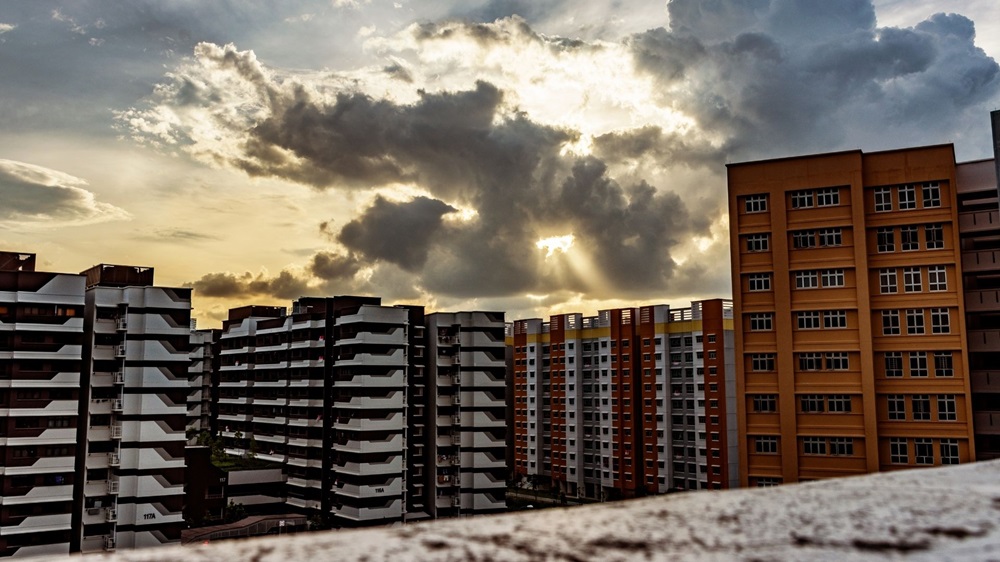
The Multi-Ministry Taskforce (MTF) has announced the reversion to Phase 2 (Heightened Alert) measures which will take effect from 22 July to 18 August (both dates inclusive). This is done to contain the growing COVID-19 clusters linked to the Jurong Fishery Port, as we push ahead with the vaccination of individuals.
These measures will supersede those that were introduced on 19 July 2021.
Reduction of social gathering group sizes from a maximum of 5 persons to a maximum of 2 persons, with a cap of 2 distinct visitors per household per day. Grandchildren being cared for daily by their grandparents will be not be counted towards this cap.
Work-from-home to remain the default at workplaces. Employers who need staff to return to workplaces need to ensure no cross-deployment at various worksites, and enforce staggered start times and flexible working hours. Social gatherings at workplaces will not be allowed.
Cessation of dine-in at all F&B establishments (including hawker centres and food courts), with only takeaway and delivery options allowed. All staff at such establishments must continue with regular 14-day Fast and Easy Test (FET) requirement, which will remain free-of-charge during this period.
Cessation of all strenuous indoor exercise classes, including individuals and group indoor sports and exercise activities.
Mask-off personalised services (e.g. facials, saunas, make-up services) will not be allowed. This will not apply to medical and dental consultations that require patients to remove their masks.
Reduction of event sizes and event size caps, with mandatory pre-event testing (PET) for some cases. Playing of wind or brass instruments will not be allowed.
Please refer to this table for full details:
Targeted support measures
The Government will provide a support package to affected businesses and workers, which will take reference from the support provided in the previous Phase Two (Heightened Alert) period. The Ministry of Finance will announce more details soon.
Mandatory SafeEntry check-in at all wet markets and hawker centres
In the coming weeks, TraceTogether-only SafeEntry (TT-only SE) and SafeEntry Gateway (SEGW) check-in requirements will be implemented at all wet markets and hawker centres island-wide.
All who enter these venues must check-in with their TraceTogether (TT) app or token using the SEGW, or by scanning the SE QR code with the TT app. This will help to facilitate quicker contact tracing efforts at these venues.

RELATED ARTICLES
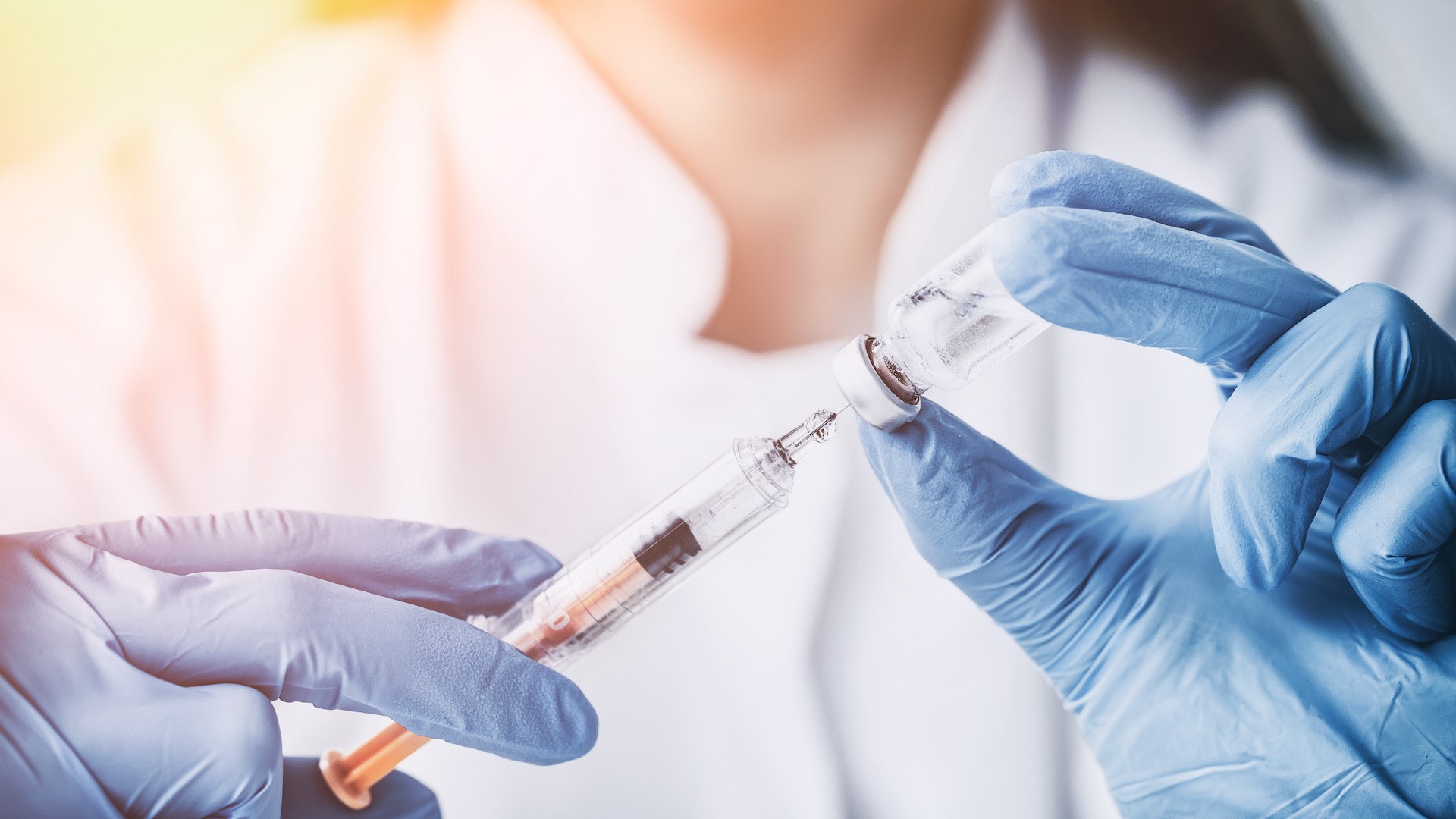
We use cookies to tailor your browsing experience. By continuing to use Gov.sg, you accept our use of cookies. To decline cookies at any time, you may adjust your browser settings. Find out more about your cookie preferences here .

- Privacy Statement
- Terms of Use
- Rate This Website
- Report Vulnerability
- Travel info
- Covid-19 Information Centre
Travel Advisories
Travel restrictions vary from time to time. If you plan to travel soon, please check the travel advisories on the International Air Transport Association (IATA) website or relevant local authorities for the latest passport, visa and health requirements. If you have any connecting flights, and your transit city and destination have different requirements, please fulfil the stricter requirement. Please note that you are responsible for complying with all travel requirements to enter your intended destination and transit country.
Useful links
Flight Schedules
Keeping you safe
Contact Singapore Airlines
You are using an outdated browser. Please upgrade your browser to improve your experience.
- Share full article

A Covid-Free Cruise Takes Planning, but the Strip Show Goes On
Singapore allows cruises to nowhere, helping a struggling industry. That means socially distanced buffet lines, electronic monitoring and hand sanitizer at the slot machines.
The World Dream, docked at Marina Bay Cruise Center in Singapore. Credit... Ore Huiying for The New York Times
Supported by

By Sui-Lee Wee
- Dec. 3, 2020
ABOARD THE WORLD DREAM, IN THE STRAIT OF MALACCA — The drinks were virgin and the distancing was social when the Dream Boys strippers stormed the stage. Masks at poolside were mandatory. Hand sanitizer stations stood within easy reach of the slot machines.
And in a vision of the future of the global cruise industry, passengers aboard the World Dream cruise liner wore small pink contact-tracing pods that monitored their locations and recorded the names of everybody they met with.
“We aboard the World Dream are doing our utmost to keep your cruise with us healthy,” Robert Bodin, the ship’s captain, told his 1,400 passengers as they set sail, in a departure from his usual invitation to relax and enjoy the journey.
The World Dream departs from Singapore two or three times a week on a cruise to nowhere, a rare beacon of hope for an industry under mortal threat. In February, the world watched in horror as the coronavirus infected more than 200 people aboard the Diamond Princess cruise ship, trapping its 3,600 passengers and crew . Governments banned cruises, crews were sent home, and passengers canceled their bookings, idling an industry that employed more than one million people.

Singapore, along with several countries in Europe as well as Japan , has extended the cruise business a lifeline. As many ships sit idle around the world, the city-state has encouraged voyages on a limited and highly controlled basis.
To find out how this was possible, I booked a three-day voyage on the World Dream. Friends and colleagues wondered why I would want to go on what some of them called “a floating petri dish.” Their fears weren’t baseless. U.S. health officials suggest people avoid cruise ships and have said operators must set out a framework for how cruising could restart. Most major cruise lines in the United States have announced that they will not resume operations until 2021. A week before I set sail, a Caribbean liner from Barbados was forced to turn back after five people tested positive for the coronavirus.
I contacted infectious-disease experts to ask about the risks.
“When I first saw your email, I thought: ‘Bad idea,’” said Dr. Edward Ryan, director of global infectious diseases at Massachusetts General Hospital. Still, he and others told me that Singapore’s restrictions made cruises look safe.
“When I look at what they are doing,” Dr. Ryan said, “they are effectively creating a reasonable bubble.”
Demand is still there. Genting Cruise Lines, the World Dream’s operator, said it had received 6,000 bookings within five days. Bookings for Royal Caribbean, which is preparing to sail from Singapore this month, were six times higher than the company would normally get in October, the cruise line said.
The World Dream offers just about everything it did before the coronavirus struck, said Genting, including a zip line, two pools, a casino, 11 restaurants and cafes, and various shows. Only the karaoke room was closed, per Singaporean government guidelines.
Singapore requires passengers take a coronavirus test before boarding. Instead of Hong Kong, Okinawa or another sunny destination, the ship would dock nowhere but Singapore. Capacity has been slashed in half, to a limit of 1,700 guests.
Following Singapore’s guidelines, the cruise lines upgraded their air filters and enforced social distancing. They required passengers to carry the contact tracing devices, which link to Singaporean monitoring systems. They staged drills for what to do if a passenger showed symptoms: test, contact-trace, isolate any infected people, tell passengers to return to their cabins and sail home.
Royal Caribbean plans to buy Covid-19 insurance for each passenger that will cover costs of up to $19,000 if the guest is infected, said Angie Stephen, the line’s Asia-Pacific managing director.
The measures drove costs about 40 percent higher, said Michael Goh, Genting Cruise Lines’ head of international sales, at a news conference. But they make cruising “one of the safest holidays at this point in time,” he said.
Genting is playing up its health efforts. “Cruise with confidence,” says the World Dream’s website , which highlights the ventilation systems (“100 percent external fresh air”) and food hygiene practices. (“Self-service at buffet restaurants will be suspended.”)
Regina Setar, 38, a part-time security guard, said she studied the measures before accompanying her 70-year-old mother on board. Her mother has diabetes and recently had knee surgery but has been “cooped up at home, watching all the news about Covid.” They paid about $300 for a balcony room.
“I’m not taking any risks,” Ms. Setar said. “I wouldn’t want to. My father would kill me if anything happened.”
Probably the biggest reason I felt safe on the cruise was that, when I boarded the ship, Singapore had gone seven straight days without any coronavirus cases.
I had to take a rapid antigen test, administered by a medical worker gently flicking a short swab around my nostrils. It was not as invasive as the long swabs used for what are known as PCR tests, the standard way of detecting the coronavirus. Antigen tests are easy to administer to large groups of people, but experts warn that they may not catch everyone who is infected.
So Genting takes other steps. Following Singapore’s rules, it has dispatched 40 “cruise ambassadors” in dark blue polo shirts to ensure guests keep their distance from one another. You get accustomed to hearing them say, “Please stand one meter apart.”
Almost all passengers comply, “but there’s always that 1 percent,” said Zulkifli bin Ibrahim, a cruise ambassador. One passenger, Mr. Zulkifli said, shouted at him after he reminded the passenger to wear a mask after swimming.
Meals test the spacing limits. Guests stood on stickers three feet apart, making for long lines at the buffet areas. They called out their food choices to the chefs, who used gloves and tongs as they filled plates.
At one dinner, an elderly woman, her mask pulled down below her chin, was peering at the offerings at the buffet table. A cruise ambassador approached her with a frantic: “Auntie, auntie! Your mask!”
The casino was a major draw. Dozens of gray-haired passengers sat at the rows of slot machines, also three feet apart. There were several tables for mahjong. A group of elderly women, wearing masks, shuffled tiles.
I’m sure I wasn’t the only one worried about the risks. A cough would make me wonder whether the woman two tables down from me was a germ vector.
Still, the passengers seemed grateful for the chance to go somewhere else for the first time since the outbreak, even if “somewhere else” was a cruise ship sailing in the middle of the water.
“It’s been ages since I traveled!” said Doris Yeo, a sales assistant and a cruise aficionado, who was laughing with nine other people, mostly family, spread across two restaurant tables. Her relatives joined, she said, because “they really like gambling.”
“There’s everything under one roof,” she said. “It’s just perfect.”
The next day, I slipped into the theater for the “Verry Christmas” show, an acrobatic performance with a Christmas theme. A drag queen wearing a blond wig, a fur stole and a sequined dress sang “Santa Baby” to a group of Santa Clauses. The masked audience hooted and hollered.
The last night of the cruise, I attended the Dream Boys male burlesque show in a Chinese restaurant. It was billed as a “ladies night where your fantasies really will come to life.” The room appeared full, even as the audience sat at least three feet apart at a series of round tables. Because the show began after 10:30 p.m., no alcohol was served, per Singapore’s Covid-19 restrictions.
The dancers’ routines — a military display with presumably fake weaponry, and another performance with captain’s hats and not much else — were met with catcalls, barely muffled even by masks. At the curtain call, the audience was clapping and cheering, with one woman shouting, “Encore!”
Fun and relaxation take some planning on a Covid-19 cruise. Shows must be booked in advance. Swimmers must do the same — the main pool allows 26 swimmers at a time, and they can swim for only an hour.
With a bit of planning, Raymond Lim and his wife managed to swim, hit the Jacuzzi and take ballroom and line-dancing classes. (“Quite fun.”) He also took a class on how to paint on pebbles. (“A bit lame.”)
Mr. Lim, who works for the Singapore Tourism Board, called it a “good break” but “a muted cruise experience.” Compared with his past cruises, he said later, he couldn’t find a lounge to chill out, and there was “no spontaneous dance.”
“Over all,” Mr. Lim said, “you don’t really get to loosen up.”
More about Sui-Lee Wee
Come Sail Away
Love them or hate them, cruises can provide a unique perspective on travel..
Cruise Ship Surprises: Here are five unexpected features on ships , some of which you hopefully won’t discover on your own.
Icon of the Seas: Our reporter joined thousands of passengers on the inaugural sailing of Royal Caribbean’s Icon of the Seas . The most surprising thing she found? Some actual peace and quiet .
Th ree-Year Cruise, Unraveled: The Life at Sea cruise was supposed to be the ultimate bucket-list experience : 382 port calls over 1,095 days. Here’s why those who signed up are seeking fraud charges instead.
TikTok’s Favorite New ‘Reality Show’: People on social media have turned the unwitting passengers of a nine-month world cruise into “cast members” overnight.
Dipping Their Toes: Younger generations of travelers are venturing onto ships for the first time . Many are saving money.
Cult Cruisers: These devoted cruise fanatics, most of them retirees, have one main goal: to almost never touch dry land .
Advertisement
The Straits Times
- International
- Print Edition
- news with benefits
- SPH Rewards
- STClassifieds
- Berita Harian
- Hardwarezone
- Shin Min Daily News
- SRX Property
- Tamil Murasu
- The Business Times
- The New Paper
- Lianhe Zaobao
- Advertise with us
Singapore announces major easing of Covid-19 rules from April 26: What you need to know
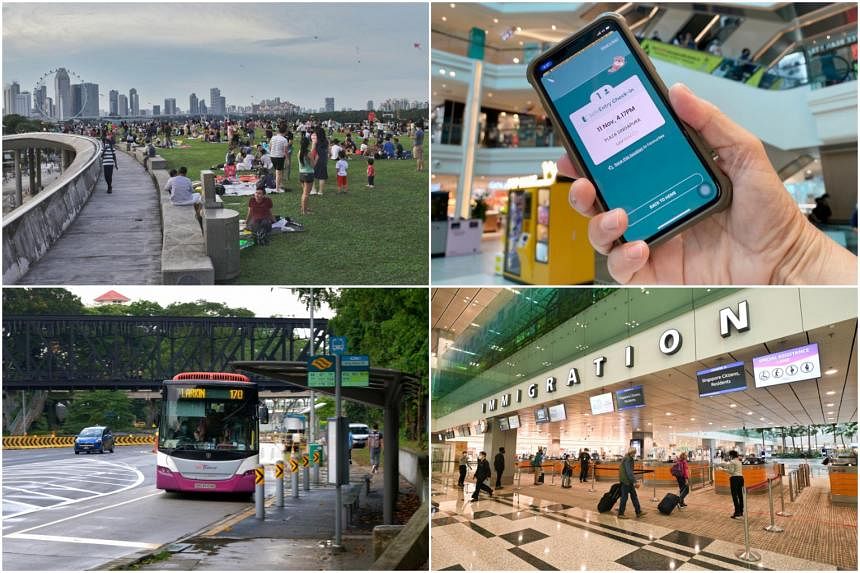
SINGAPORE - Group size limits and safe distancing requirements will be removed, as part of a large-scale easing of Covid-19 measures announced on Friday (April 22).
The Disease Outbreak Response System Condition (Dorscon) level, which indicates the current disease situation, will also be lowered from orange to yellow from Tuesday.
Singapore has been at Dorscon orange since Feb 7, 2020.
This comes as daily infection numbers continue to fall and have stabilised, giving the Government the confidence to proceed with further easing of community and travel measures, said the Ministry of Health (MOH).
While cautioning that potential curve balls may knock Singapore back to square one, Health Minister Ong Ye Kung said during a press conference that "on the whole, things continue to look up for us".
"Our social resilience is strong and now we are in a comfortable position. We can therefore afford to take further steps to restore pre-Covid-19 normalcy," he said.
Here are the changes announced:
1. No more group size limits and no more requirement for safe distancing
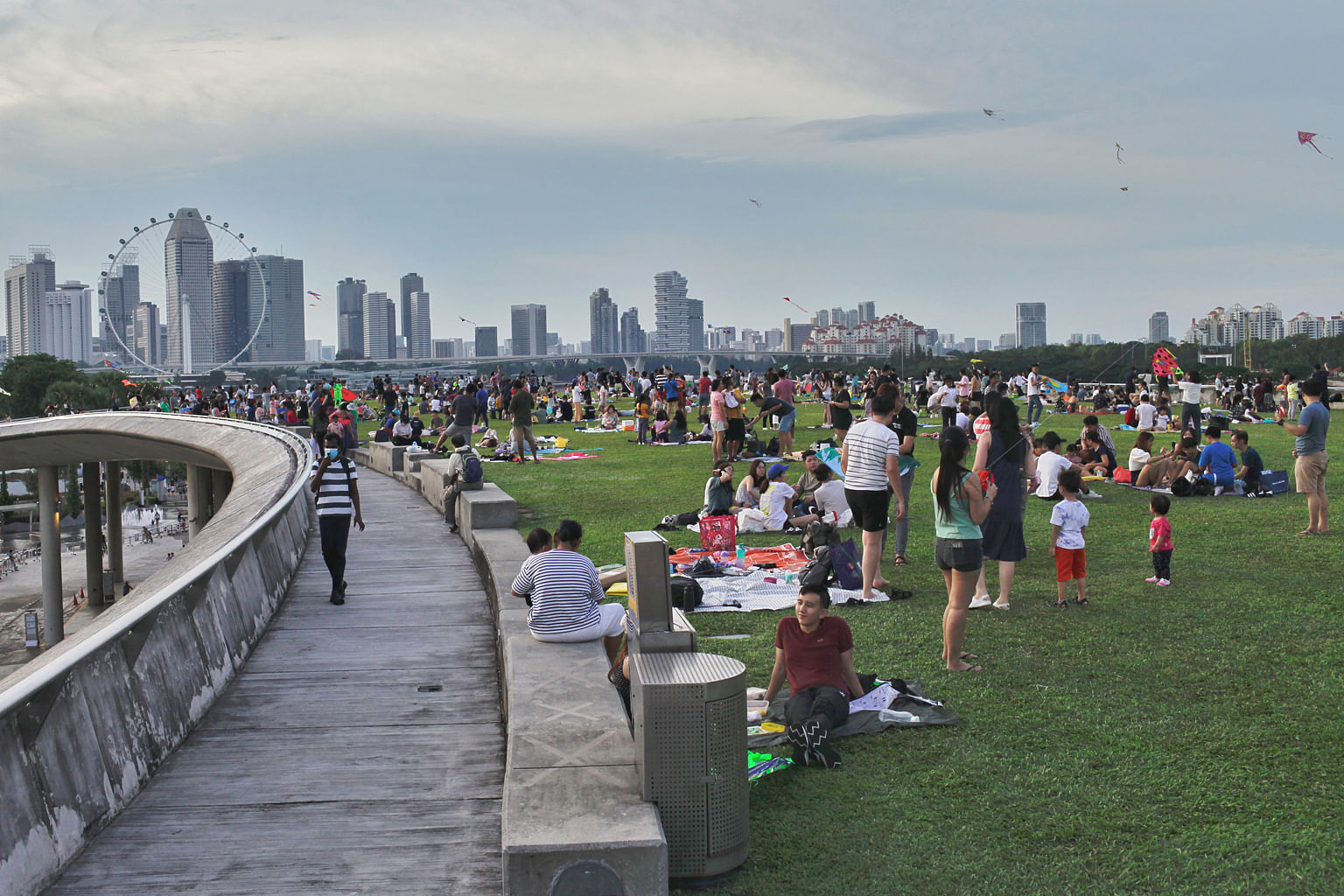
From April 26, individuals will not need to keep to a group of 10 people for mask-off activities.
The cap on the number of unique visitors to a household, previously 10 people at any one time, will also be lifted.
This also applies to attendance limits for home marriage solemnisations and home funerals.
As group size limits are lifted, safe distancing will also no longer be required between individuals or between groups, both indoors and outdoors.
READ FULL STORY: No limit on group size, masks not mandatory at workplaces as Singapore eases most Covid-19 rules
2. Masks still required indoors
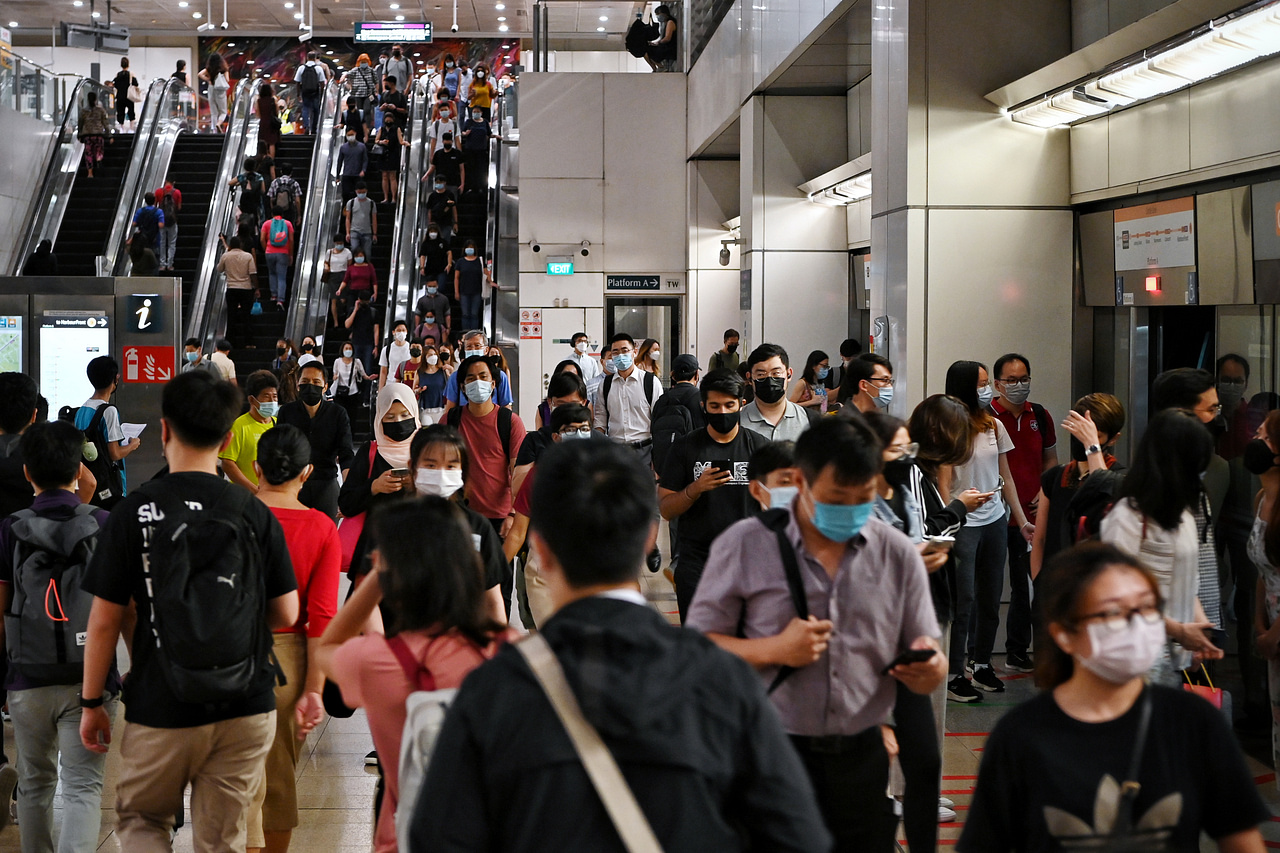
Masks will continue to be required in indoor settings when people leave their homes, including on public transport.
Masks will remain optional in outdoor settings. However, the Health Ministry encourages individuals to exercise precaution. For example, in crowded outdoor areas, it would still be a good idea to wear masks, it said.
3. All workers may return to the workplace; masks can be removed in some situations
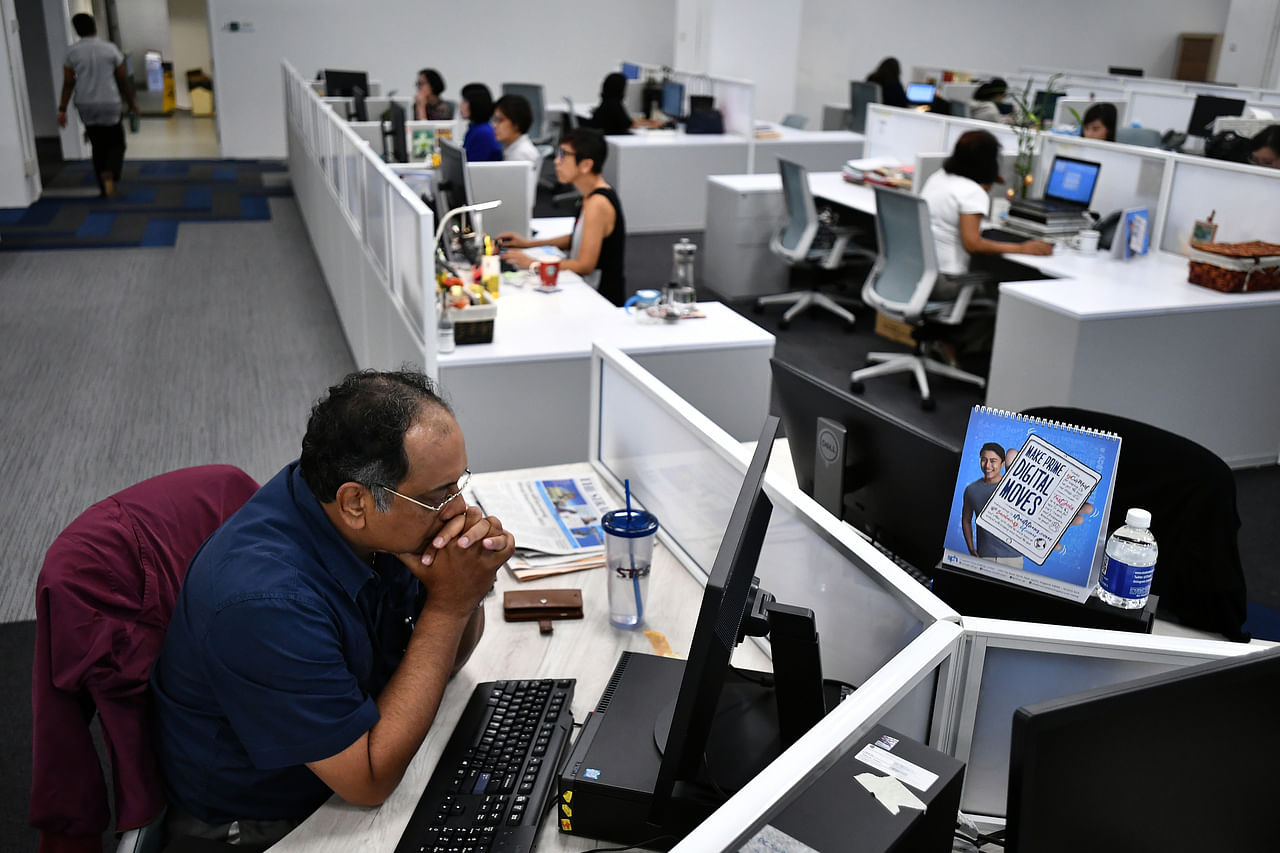
From April 26, all workers may return to the workplace, up from the current limit of 75 per cent of those who can work from home.
Notwithstanding the mask-on requirement in indoor settings, workers will be allowed to remove their masks at the workplace if they are not interacting physically with others and are not in customer-facing areas.
The Health Ministry encourages employers to retain and promote flexible work arrangements, such as telecommuting and staggered work hours, as a permanent feature of the workplace.
READ FULL STORY: Flexibility allowed in workplace as 'very hard' for employees to wear mask all day: Lawrence Wong
4. Capacity limits removed for large events with more than 1,000 participants

Currently, larger settings or events with more than 1,000 participants and that require masks to be worn are subject to a capacity limit of 75 per cent.
From April 26, this limit will be removed.
The only exceptions are nightlife businesses where dancing among patrons is one of the intended activities. These will continue to be subject to a 75 per cent capacity limit.
5. Pre-departure test before entry to Singapore no longer needed if fully vaccinated
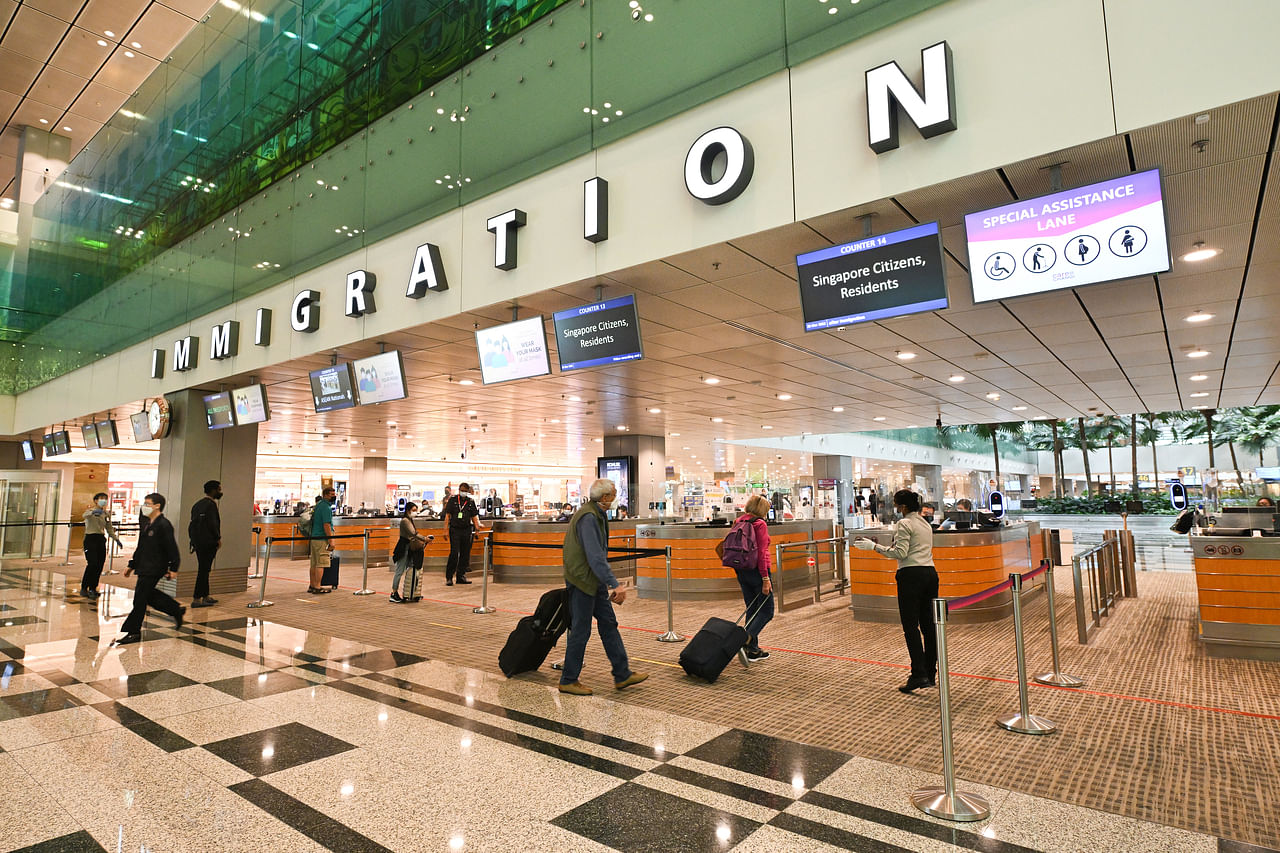
From April 26, all fully vaccinated travellers and non-fully vaccinated children aged 12 and below arriving via air or sea checkpoints, will no longer be required to take a pre-departure test before departing for Singapore.
Currently, fully vaccinated travellers arriving via these checkpoints must take a test within two days of their departure for Singapore.
Entry requirements for non-fully vaccinated travellers remain unchanged.
All non-fully vaccinated travellers aged 13 and above who are allowed to enter Singapore are required to take a pre-departure test within two days before departure for Singapore, undergo a seven-day stay-home notice period, and take a polymerase chain reaction test for Covid-19 at the end of their stay-home notice period.
READ FULL STORY: No more Covid-19 tests for vaccinated travellers entering Singapore from April 26
6. Vaccination-differentiated safe management measures removed in most settings; workforce vaccination measures lifted
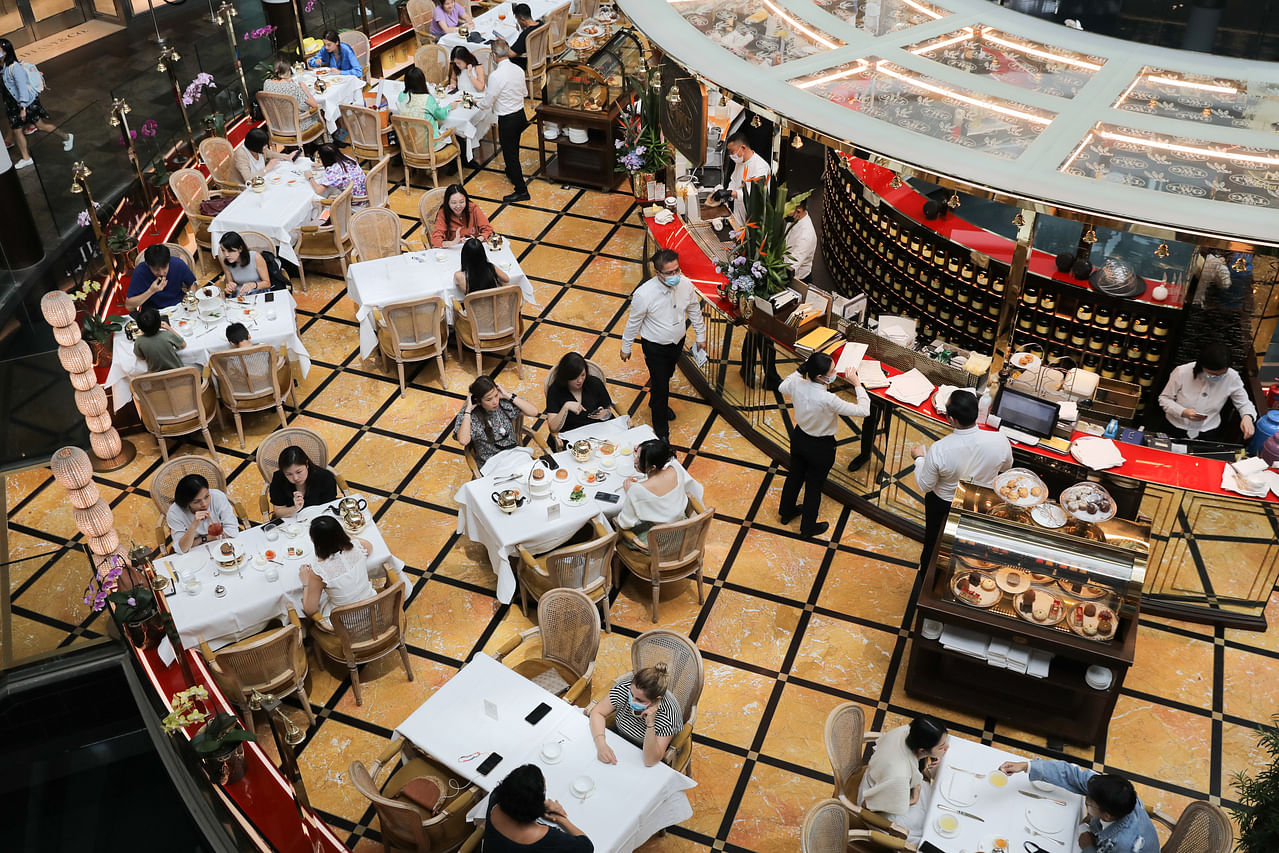
Vaccination-differentiated safe management measures (VDS) will be removed from April 26 for most settings.
They will remain for events with more than 500 participants at any one time, such as larger-scale gala dinners, weddings, dinner and dance events; nightlife establishments where dancing among patrons is one of the intended activities; and food and beverage (F&B) establishments, including restaurants, coffee shops and hawker centres.
But while VDS is still required at F&B establishments, these businesses will no longer need to conduct vaccination status checks on their customers. The onus will be on individuals to abide by the rules.
At the same time, workforce vaccination measures will also be lifted nationally. The measures had required employers to ensure that those returning to the workplace are fully vaccinated.
Given that the pandemic is not yet over, tripartite partners have agreed that employers should have the flexibility to continue implementing vaccination-related instructions for employees for workplace health and safety and business continuity reasons, and in accordance with employment law, said the Health Ministry.
READ FULL STORY: Can someone who is not fully vaccinated dine out from April 26?
7. Step down in use of TraceTogether and SafeEntry
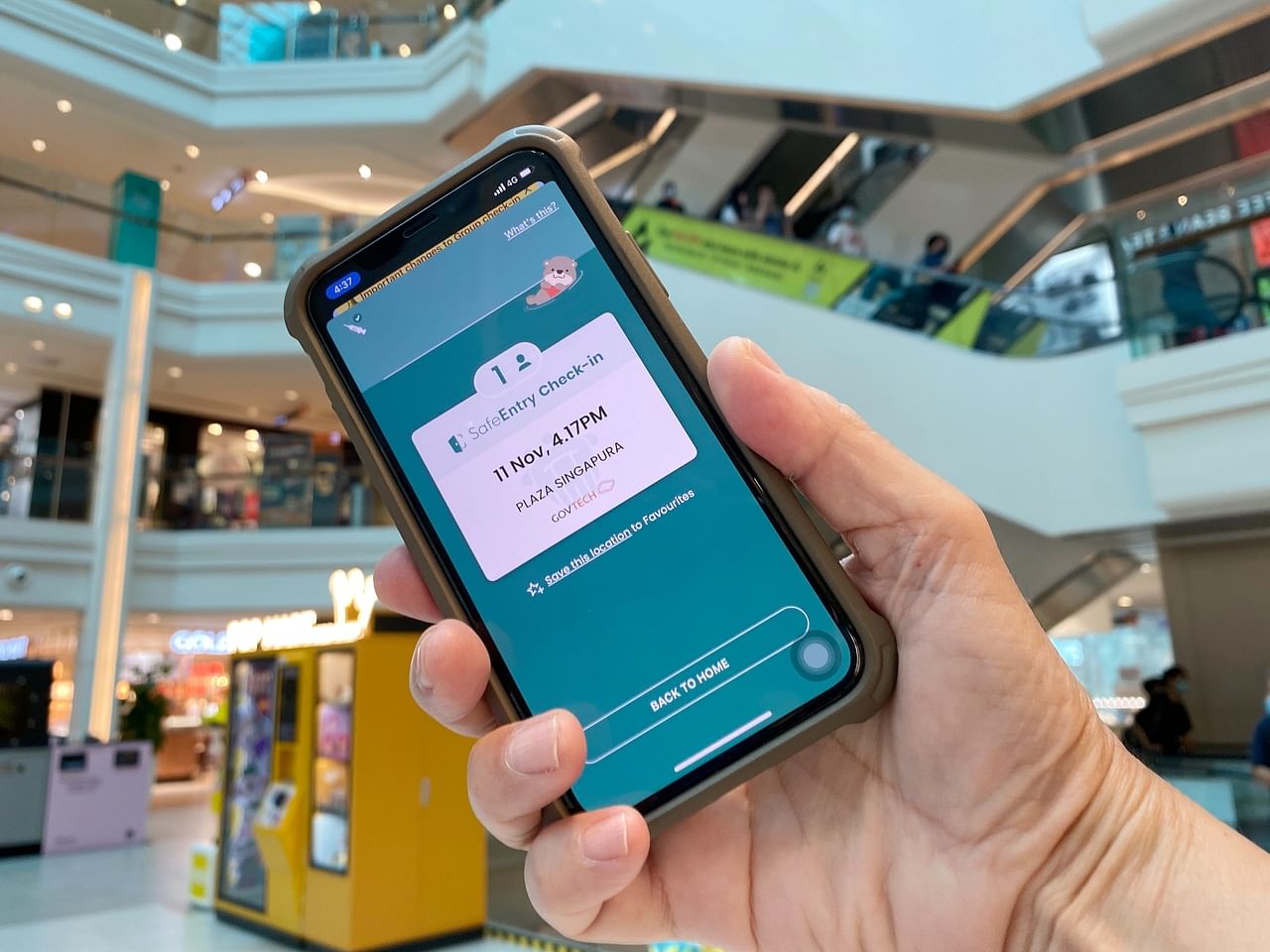
As most venues will no longer require the public to check in using the TraceTogether app or token as part of vaccination-differentiated safe management measures, the use of TraceTogether and SafeEntry will cease.
However, these capabilities will be maintained as a means of conducting VDS checks where necessary, and to enable the Government to rapidly step up contact tracing and checks should it need to do so again in response to any new variant of concern, said MOH.
The public is therefore strongly encouraged to keep the TraceTogether application on their phones as well as their TraceTogether tokens, it said.
Any generated TraceTogether or SafeEntry data may continue to be used by police officers and law enforcement officers for criminal investigations and proceedings in respect of serious offences, as provided for under the Covid-19 (Temporary Measures) Act.
READ FULL STORY: TraceTogether no longer required in most settings from April 26
8. No more health risk notices
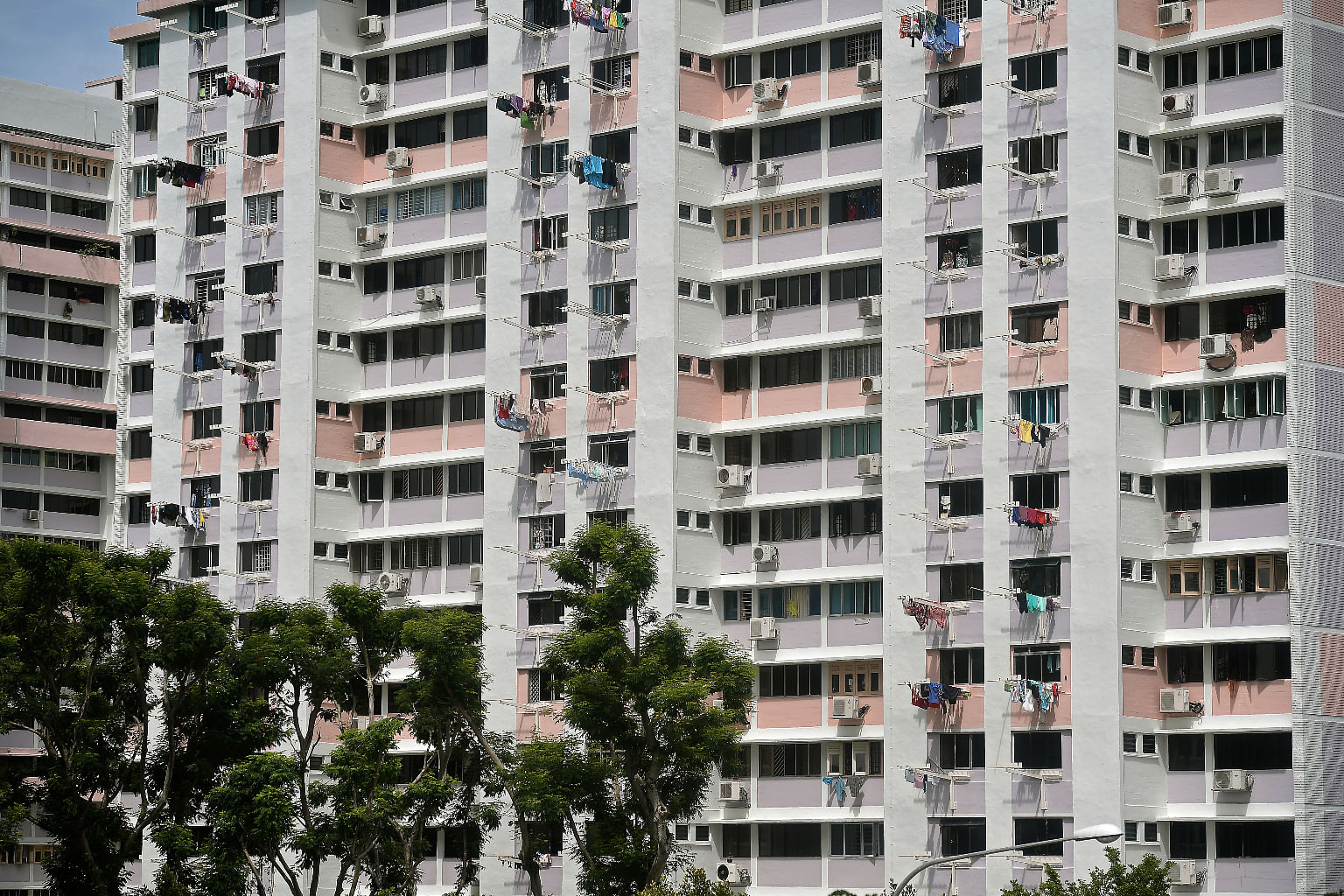
From April 26, MOH will stop issuing health risk notices to close contacts of Covid-19 positive cases.
Individuals infected with Covid-19 will no longer need to submit details of household contacts online, but should continue to exercise social responsibility.
They should inform their close contacts, who can take the necessary precautions and test themselves before leaving their homes, to prevent further spread, said MOH.
Settings with vulnerable people, such as hospitals, nursing homes and elderly homes, should request proof of a negative antigen rapid test (ART) result for people with recent exposure before allowing them entry.
9. No more free community ART
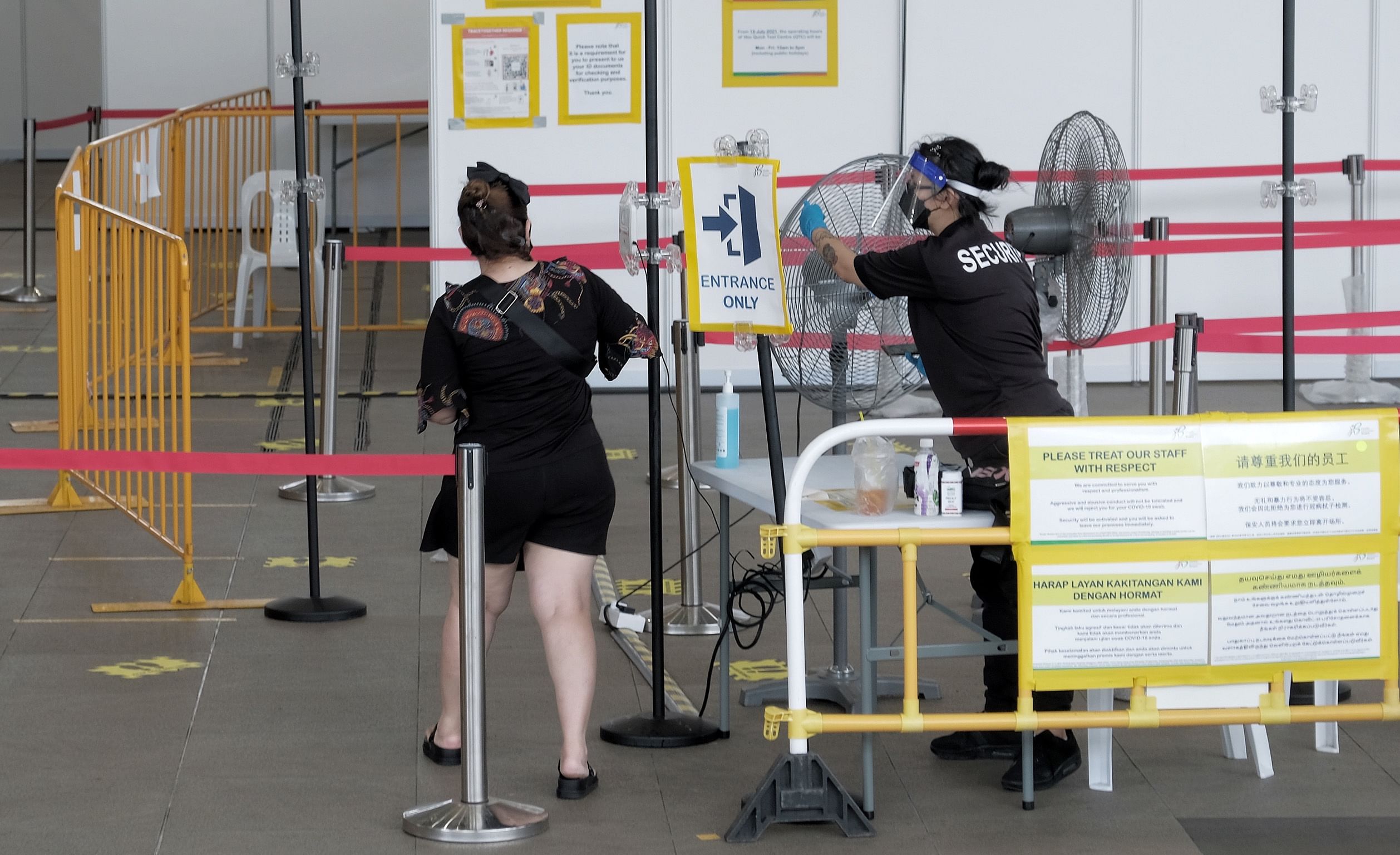
The Government has been providing free community ART and weekend acute respiratory infection testing at combined test centres (CTCs) and quick test centres (QTCs) during the Omicron wave to alleviate the workload at general practitioner clinics and other healthcare facilities.
With the declining case numbers and easing workload, these free tests will cease from April 26.
Paid ART will still be available for members of the public at the CTCs, QTCs, general practitioner clinics or via tele-ART providers.
10. Resumption of cross-border bus and taxi services to Malaysia
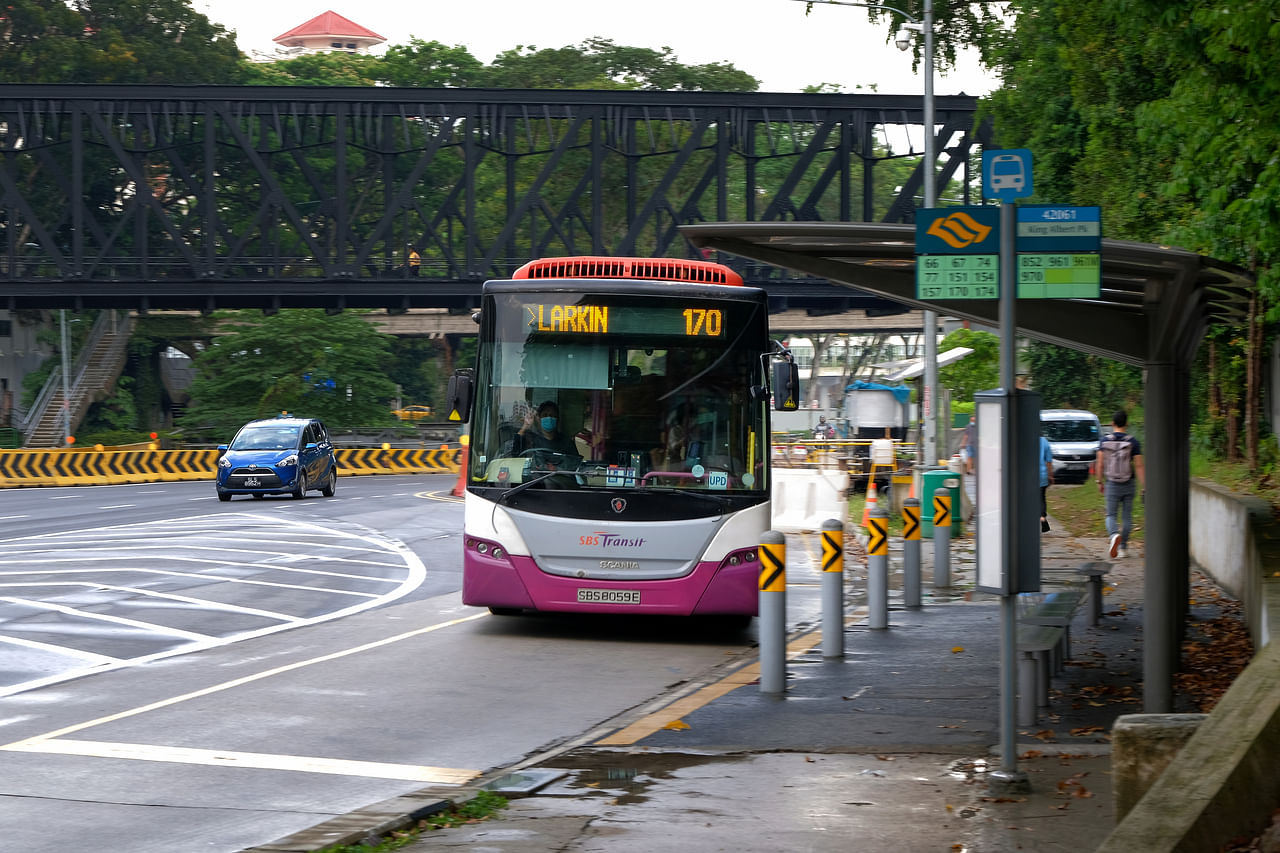
Following the reopening of Singapore and Malaysia land borders for fully vaccinated travellers on April 1, the Land Transport Authority, together with the public transport operators, will resume the operation of cross-border bus services from May 1.
Singapore bus operators will reinstate cross-border bus services between Singapore and Johor Baru. These include services 160, 170 and 170X operated by SBS Transit, service 950 operated by SMRT Buses, and services TS1, TS3, TS6 and TS8 operated by Transtar Travel.
Cross-border taxi operations will also resume on May 1.
Commuters travelling to Johor can either board a taxi at the Queen Street taxi terminal or book one through taxi companies with licensed cross-border taxi drivers.
READ FULL STORY: S'pore-Malaysia cross-border public bus and taxi services to resume on May 1
11. Expansion of community visits for migrant workers
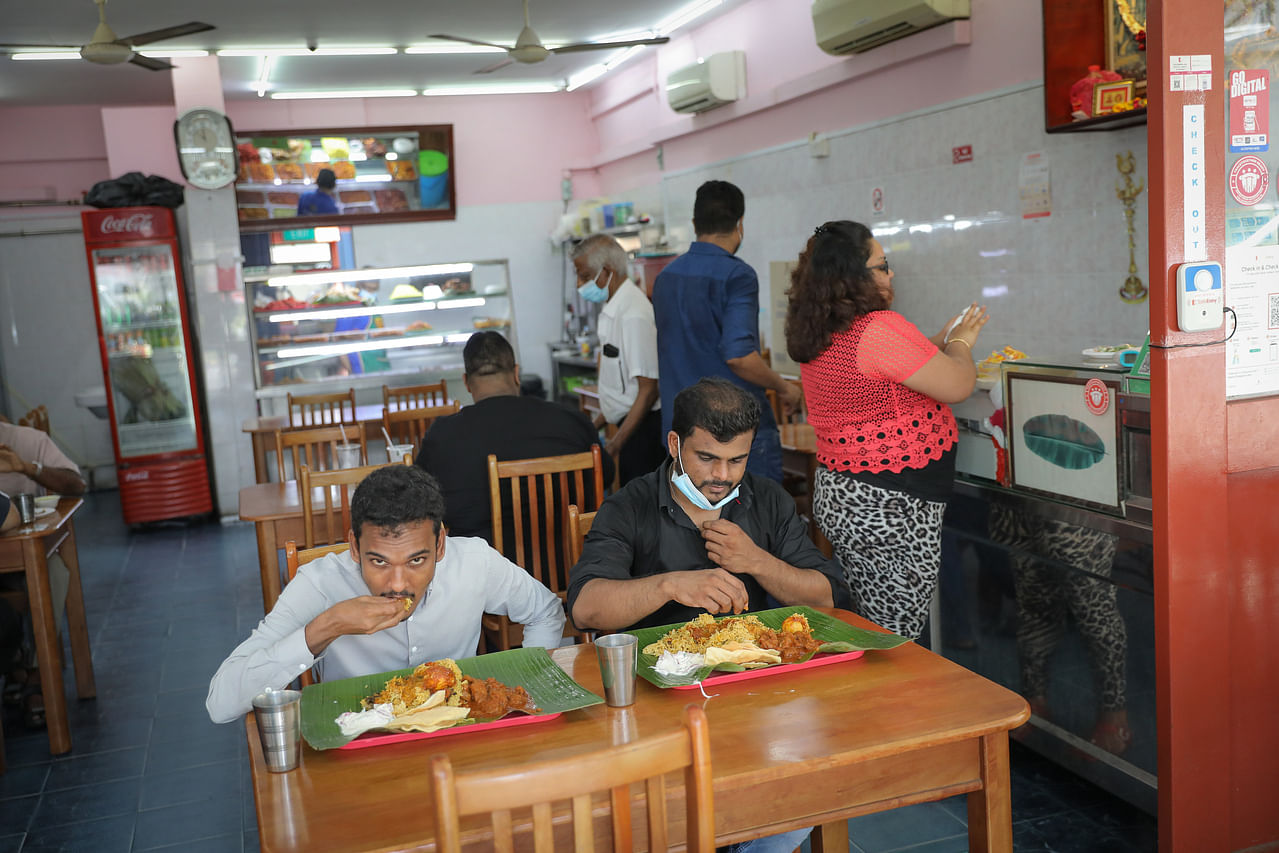
From April 26, up to 25,000 migrant workers will be able to visit the community on weekdays, and up to 50,000 on weekends and public holidays, for up to 8 hours per visit.
This is an increase from the current quotas of 15,000 on weekdays, and 30,000 on weekends and public holidays.
With the lifting of VDS in most settings, unvaccinated migrant workers will now also be allowed to participate in community visits.
READ FULL STORY: More migrant workers can take part in community visits, including unvaccinated workers
12. Boosters available for those aged 60 to 79
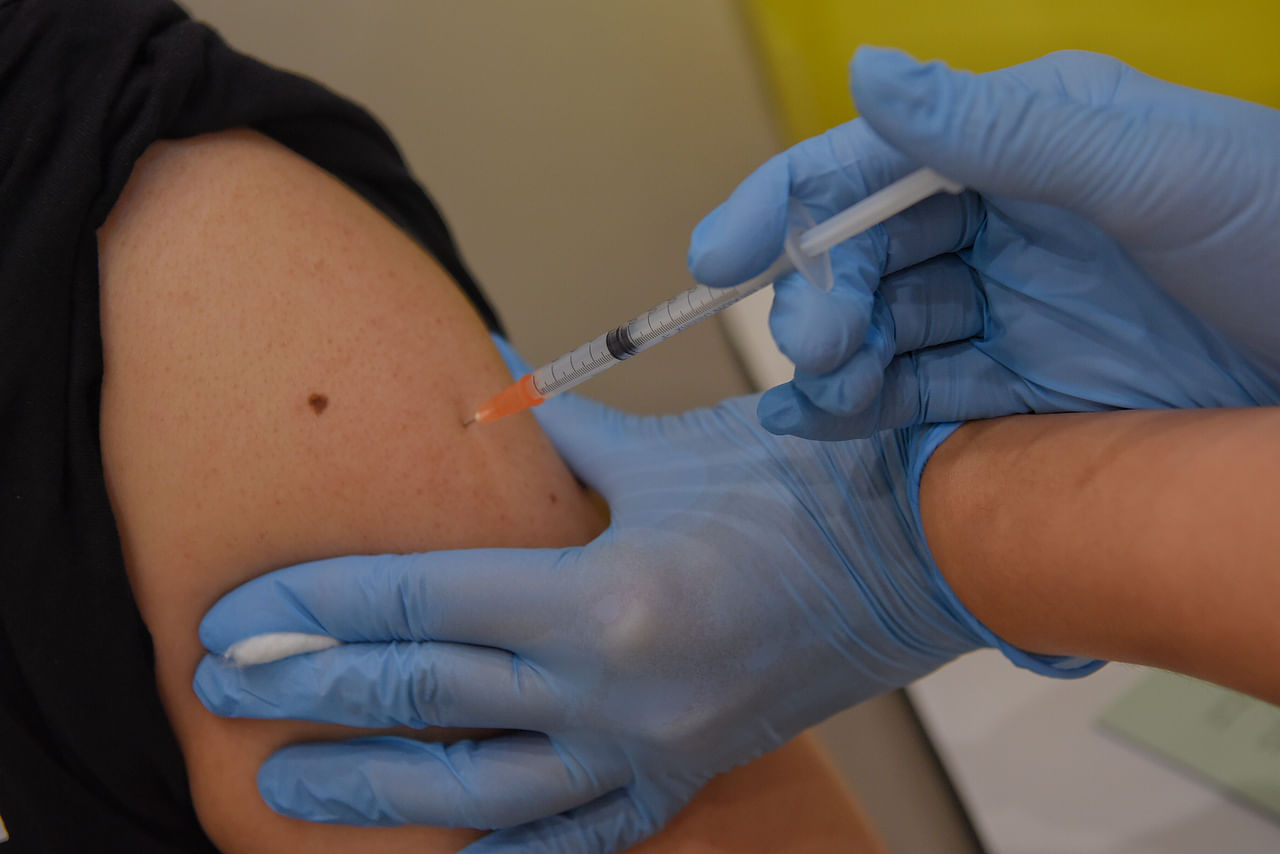
While the Expert Committee on Covid-19 is not recommending that seniors aged between 60 and 79 years receive a second booster shot, it has agreed to offer it to seniors who wish to have it.
They can get their shots by going to any vaccination centre offering mRNA vaccines, before 7pm.
The second booster vaccine dose should be administered about five months after receiving the first booster.
Earlier recommendations were for a second booster for specific groups - those aged 80 and above, residents of aged care facilities, and the medically vulnerable.
For those aged 12 and above who have recovered from Covid-19 and have completed their primary vaccination doses, they will need to have the booster dose within nine months of their last primary vaccination dose to maintain their vaccinated status.
This is in view of waning immunity and should not be delayed beyond nine months of the last primary vaccination dose, said MOH.
These individuals can walk into any vaccination centre before 7pm to receive their booster dose.
READ FULL STORY: People aged 60 to 79 can take second Covid-19 booster if they wish to
13. More Covid-19 vaccination centres to stop operations
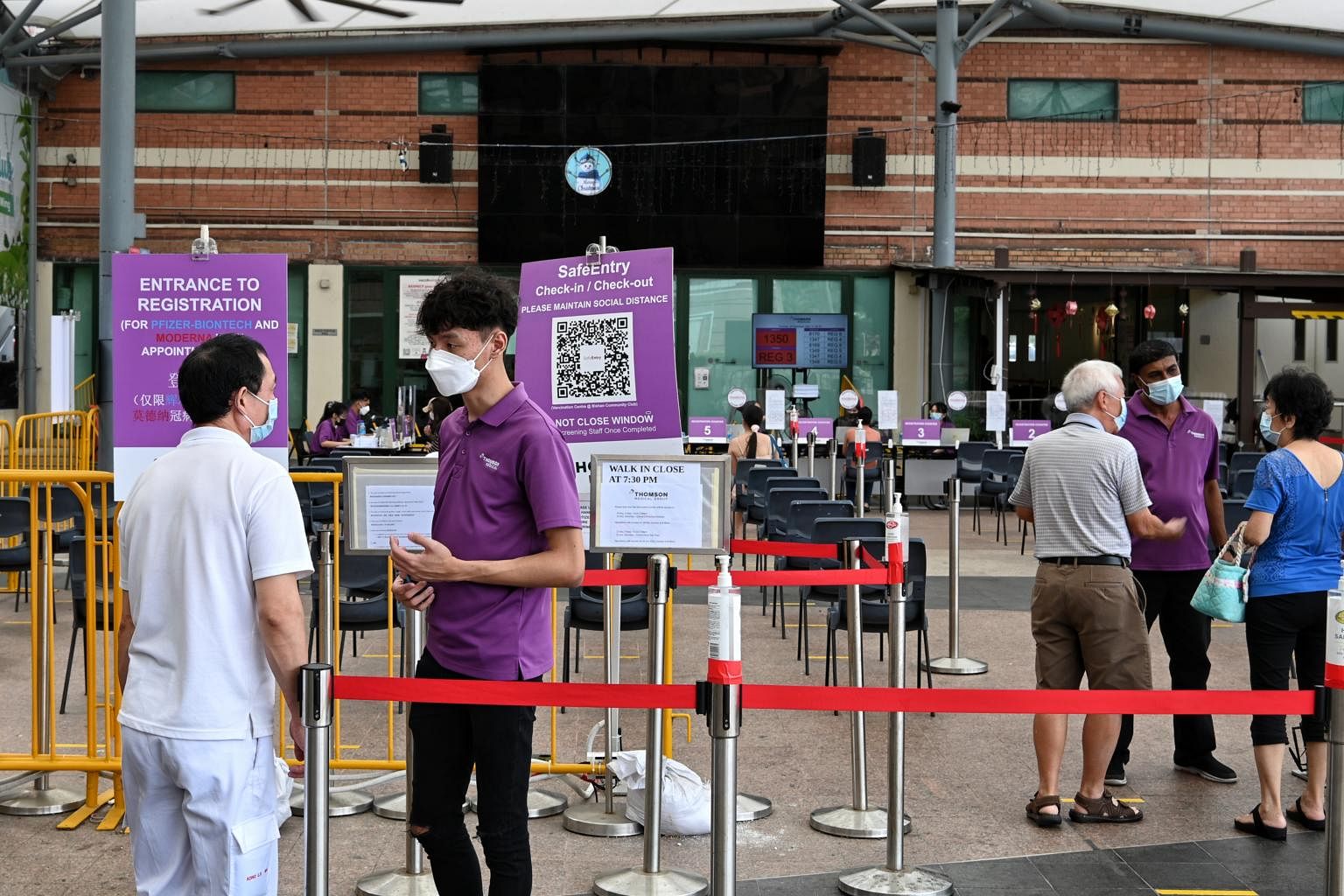
More Covid-19 vaccination centres will cease operations over the coming months, as the number of Covid-19 doses administered has decreased steadily in recent weeks.
Twenty centres will operate until end-May and another six until end-June. One centre - at Marine Parade Community Club - will operate until end-April. There are currently 29 vaccination centres across Singapore, according to MOH's website.
MOH said it will consolidate its resources into several joint testing and vaccination centres, and will give more details later.
READ FULL STORY: More Covid-19 vaccination centres to stop operations
14. In-person visits to hospitals, residential care homes allowed for all, regardless of vaccination status
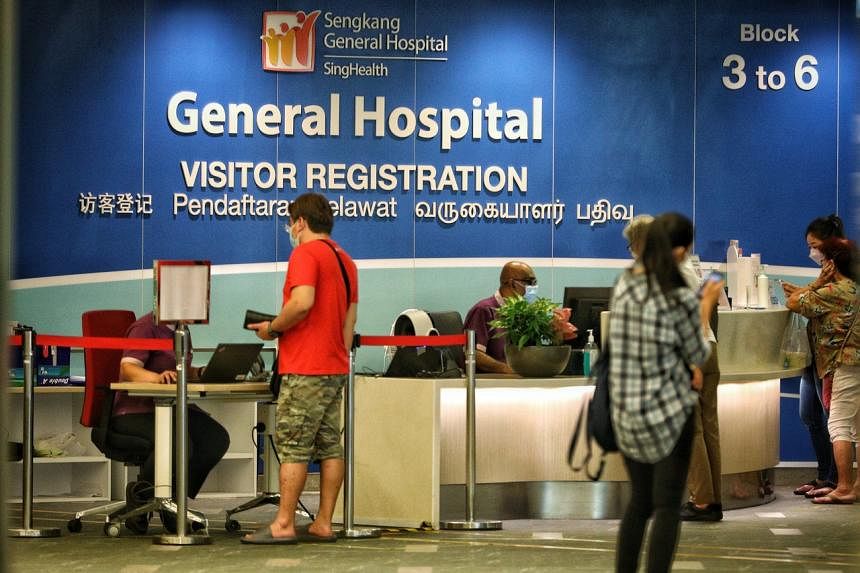
From Tuesday (April 26), in-person visits to hospitals and residential care homes will be allowed for everyone, regardless of the vaccination status of patients, residents and visitors.
This is part of the easing of Covid-19 measures for such visits, the Ministry of Health (MOH) said on Monday (April 25).
Visits to residential care homes, however, will be capped at one hour to allow all families of residents the chance to visit.
READ FULL STORY: In-person visits to hospitals, residential care homes allowed for all, regardless of vaccination status
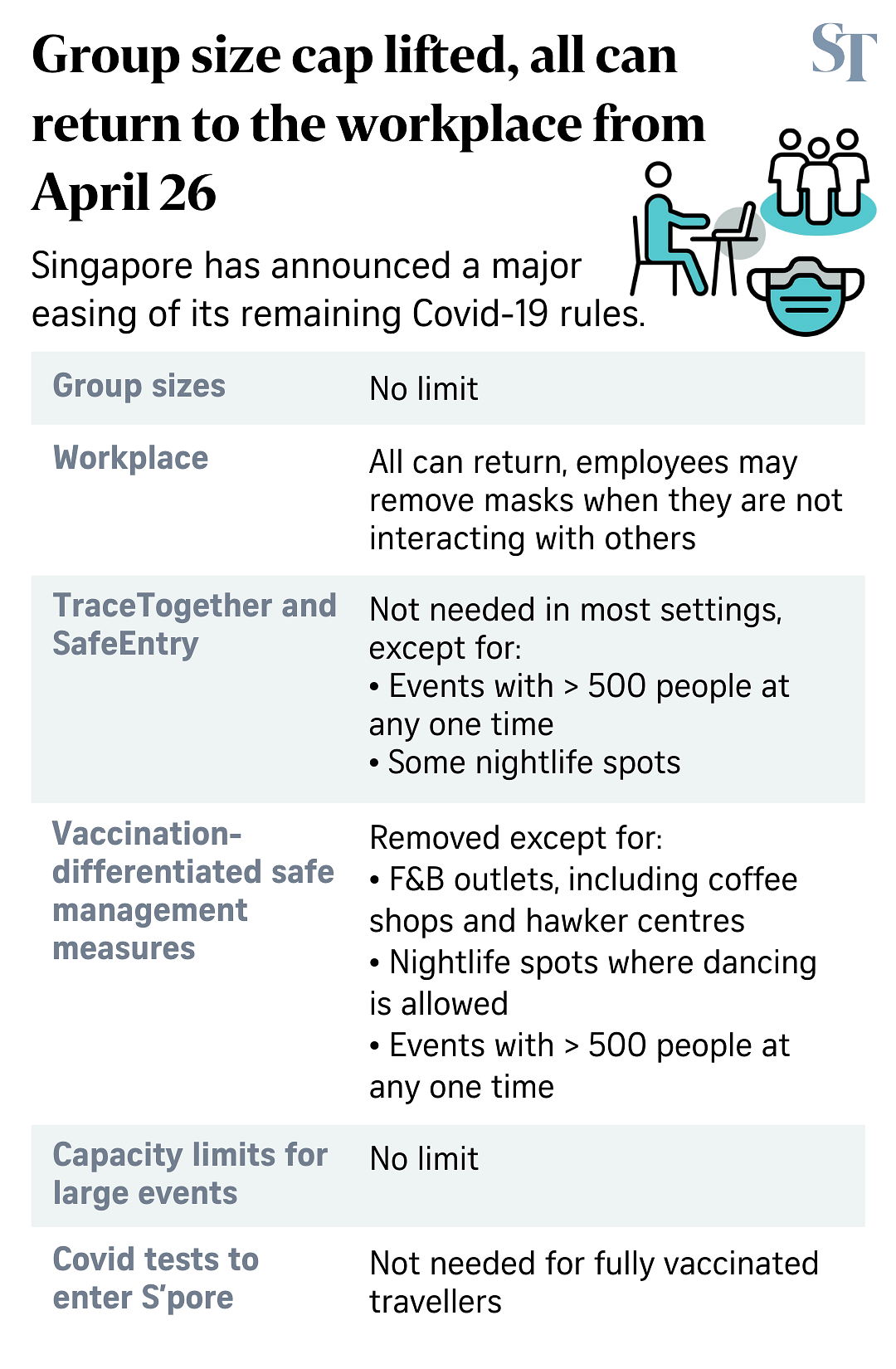
Join ST's WhatsApp Channel and get the latest news and must-reads.
- Coronavirus
Read 3 articles and stand to win rewards
Spin the wheel now
You are using an outdated browser. Please upgrade your browser to improve your experience.
We use cookies to improve your website experience and provide more personalized services to you, both on this website and through other media. By continuing to use this website, you agree to our use of cookies as explained in our Cookie Policy . Please read our Cookie Policy for more information on how we use cookies and how you can disable them.
New User? Register
- Manage bookings
- Cancellation
- On Behalf Booking
- MyQuotation
We're unable to sign you in because the password entered incorrect.
Your request for OTP will be sent to registered email id and mobile number, if not registered please do the same.
You exceed the OTP limit. Please try again after some time
Don't have an account?
- Contains between 8-12 alphanumeric characters.
- Can add special character but not mandatory(Only !, @, #,$,%,^,&,* to be used).
- Does not contain White spaces
I would like to be kept informed of special Promotions and offers. I hereby accept the Privacy Policy and authorize Thomascook to contact me.
Already have an account?
- Your existing Google or Facebook Id will be a Thomascook ID
- No need to remember different Ids & Passwords
- One Click login
Fill in the email Address that you used to register or book with Thomascook.
We will reset and send your new password.
Please enter the valid email address
Your request for new password has been accepted.
The new password would be emailed to the registered email address, if not registered please do the same

- travel guidelines
I accept the Privacy Policy and I authorise Thomas Cook to contact me with details
- A. 15th June 2020
Singapore Travel Guidelines
- Open for Travel: Fully Open for Travel
- No COVID Requirements or Restrictions for Entry to Singapore.
Vaccination
- Not Applicable
- Booster dose criteria: Not Required
- Paper Visa processing takes around 7 working days
Operating Status
Singapore travel restrictions for tourists:.
- Singapore Quarantine rules : Not Applicable
- Apps/Portal : Trace Together / Air Suvidha. All travelers should submit self-declaration form on the online Air Suvidha portal ( www.newdelhiairport.in ) before the scheduled travel, including last 14 days travel details. Each passenger shall also submit a declaration with respect to authenticity of the report and will be liable for criminal prosecution, if found otherwise.
- Travel pass : SG Arrival Card. The mandatory SG Arrival Card with electronic Health Declaration ("SG Arrival Card") facilitates the submission of personal information, trip details and health declaration by all travellers seeking entry into Singapore. Submit your SG Arrival Card within three (3) days prior to the date of arrival in Singapore. Your travel documents and SG Arrival Card acknowledgement (soft copy is acceptable as well) are to be shown to the ICA officer at the immigration counter upon arriving Singapore. Submit your SG Arrival Card via https://eservices.ica.gov.sg/sgarrivalcard/
- Travel Protocol : Travellers can take any flight or ferry to Singapore without any entry restrictions (such as testing or quarantine).
- Airlines Operating
- Singapore Airlines, Go Air, Indigo, Vistara, Air India
"Grab Best Deals on Singapore Tour Packages "

- Account details
- Newsletters
- Group subscription
Singapore's Marina Bay Sands to build fourth tower by 2029
After COVID delay, landmark casino resort to start hotel expansion next year
SINGAPORE -- Marina Bay Sands, Singapore's iconic casino and hotel resort, is set to begin expanding its downtown property after being held back by the COVID-19 pandemic.
MBS said Friday that full-scale construction of the project, which includes a fourth hotel tower next to the current triple-tower facility, will begin by July 2025, with a target completion date of July 2029.
As Singapore basks in Taylor Swift afterglow, Indonesia fears missing out
Singapore's taylor swift jackpot about more than exclusivity, thai ports bemoan competitive decline as srettha pushes 'land bridge', malaysia revives 'ambitious' high-speed rail plan amid hurdles, latest on travel & leisure, japan hotel rates spike 25% as weak yen draws foreign tourists, macao horse racing ends as casino income hits post-covid high, japan's kawasaki heavy offers helicopter trips to attract tourists, sponsored content, about sponsored content this content was commissioned by nikkei's global business bureau..
Nikkei Asian Review, now known as Nikkei Asia, will be the voice of the Asian Century.
Celebrate our next chapter Free access for everyone - Sep. 30
- Startups & Tech
Singapore start-up to take on fake concert tickets after tackling bogus Covid-19 certs
A LOCAL start-up that allowed healthcare firms to issue tamper-proof memos essential for travel during the Covid-19 pandemic now wants to take on the world of fake concert tickets and academic certificates.
In late March, Accredify received a shot in the arm with funding from the venture firm of American digital identity specialist Okta. The undisclosed sum from Okta Venture will pave the way for Accredify to expand globally, including reaching Okta’s base of 18,000 enterprise customers, with its new mission.
The five-year-old Singapore company is making a pitch for its technology to fight everyday scams through the issue of verifiable credentials, first used during the pandemic to inspire confidence in cross-border travel.
“One of the next steps for us is to solve the big problems that touch citizens’ lives: To prevent scams and fraud in e-commerce, ticketing and news dissemination,” Quah Zheng Wei, co-founder and chief executive officer of Accredify, told The Straits Times .
In 2021, Accredify enabled healthcare providers here, including Parkway Laboratories and Raffles Medical Group, to issue tamper-resistant digital health memos after fake ones were spotted in Europe.
These memos – whose authenticity can be easily verified through QR code scanning – were needed to safely restart travel and facilitate migrant workers’ re-entry into the workforce following Covid-19 outbreaks in their dormitories.
A NEWSLETTER FOR YOU

The hottest news on all things startup and tech to kickstart your week.
Accredify’s technology is based on blockchain, a searchable digital ledger. Its key selling point is that transaction information recorded on the blockchain cannot be forged, allowing ownership of, say, a digital work of art or non-fungible token (NFT), to be easily transferred and validated.
Similarly, the ownership of digital goods such as concert tickets can be encrypted in a blockchain, and validated when resold. Scammers will not be able to sell what they do not have, or multiple copies of the same ticket.
It is a nifty tool for e-commerce platforms, healthcare providers, academic institutions, traders and governments to provide public assurance through the issuing of verifiable documents and credentials.
The Singapore police said that between Jan 1 and Mar 12 in 2024, at least 1,551 victims had fallen prey to e-commerce scams involving concert tickets, with total losses amounting to at least S$737,000. The bulk of these tickets were for Taylor Swift’s best-selling Eras tour in Singapore from Mar 2 to 9.
Popular e-marketplace Carousell could not control scammers preying on desperate fans in the resale market on its platform. In an unprecedented move on Feb 23, Carousell suspended the American pop star’s concert ticket sales across its six markets in Singapore, Hong Kong, Indonesia, Malaysia, the Philippines and Taiwan.
“Carousell didn’t have to resort to such an extreme measure,” said Quah, whose current clients are mainly in the healthcare and education sectors.
London-based ticketing software start-up Dice is a keen rival in the concert ticketing space. Dice provides e-tickets that must be activated in-app prior to being scanned. The QR codes are activated only two hours before the event. Dice’s investors include SoftBank Vision Fund, Nest co-founder and iPod inventor Tony Fadell, as well as French billionaire entrepreneur Xavier Niel.
“Trust is a universal problem,” said Ben Goodman, senior vice-president and general manager of Okta Asia-Pacific and Japan.
He noted that Accredify’s tools are a natural extension of Okta’s platform-agnostic developer tools that support authorisation and authentication. “Verifiable credentials logically then can become a vital component of authentication going forward,” he said.
The Series A extension by Okta Venture comes after Accredify secured US$7 million (S$9.4 million) in financing in April 2023, co-led by iGlobe Partners and SIG Venture Capital, with participation from Pavilion Capital and Qualgro.

In 2021, Accredify also raised US$2 million led by venture capital firm Qualgro to combat the rising problem of fake degree certificates in the education sector.
Today, the start-up counts more than 900 organisations in Asia and Europe as clients. They include Singapore Management University, NTUC LearningHub, Raffles College of Higher Education, London School of Business and Finance, and Brickfields Asia College.
How verification is done
The Accounting and Corporate Regulatory Authority (Acra) of Singapore is one of Accredify’s latest customers. Acra’s free trustBar online service, launched in March 2023, lets users verify if Acra-issued business profiles and business registration certificates have been tampered by scanning a QR code on the certificate.
A green tick shows that the document is real. The authentic copy will also be displayed on screen to allow the checker to verify any details. A red cross means the document is fake.
Acra’s move comes amid frequent fraud in various sectors.
In January, Singapore artificial intelligence (AI) start-up Vizzio Technologies’ founder Jon Lee made news for faking his Cambridge doctorate. The lie went as far as China, where media articles repeated his fraudulent credentials.
Over two decades ago, he lied about his awards and fellowships from the Massachusetts Institute of Technology and Stanford University under a different name. In 2001, he was fired from Singapore firm Elipva, where he served as chief technology officer under the name Dennis Lee.
In another scandal in 2021, 23 foreigners were found to have falsely declared their educational qualifications from India’s Manav Bharti University in their work pass applications in Singapore. The Indian university had reportedly sold 36,000 fake degrees across 17 Indian states over 11 years.
Subsequently, two Indian nationals were jailed, and 19 others were permanently barred from future employment in Singapore for using fake degrees to apply for work passes.
Separately, a Nanyang Technological University dropout forged a bachelor’s degree in engineering certificate from the institution and duped multiple firms into hiring her from 2005 to 2021.
Her offences came to light only when her most recent employer, Walt Disney, sent her fake certificate to be validated by a third-party vendor shortly after she was hired in 2021.
As part of a national effort to thwart forgery, all graduating students in Singapore have been issued digital verifiable certificates since 2019. Verification can be done by potential employers on the OpenCerts portal developed by GovTech. Any modified certificate will fail validation and show up as having been tampered with.
The initiative covers academic certificates from the N, O and A levels, all the way through to other post-secondary qualifications such as polytechnic diplomas and university degrees, as well as Singapore Workforce Skills Qualifications.
Deep fake images, videos
An emerging battlefield is the area of fake images and videos, where crooks have received immense help from generative AI tools.
In February, CNN reported that a finance worker at a multinational firm in Hong Kong was duped into paying out US$25 million to fraudsters. The elaborate scam saw the worker conned into attending a multi-party video conference call with deep-fake recreations of the company’s UK-based chief financial officer and other staff.
The industry has so far rallied around watermark technologies to identify AI-generated content. But their developments are still nascent. A basic implementation involves pasting a watermark on top of an image or a video footage, but the watermark can be easily edited out. Watermarking also puts the burden on consumers to check the provenance of what they see online, which does not always happen.
Another form of watermark records the provenance of the image or video on the blockchain. But editing photos and videos may not necessarily be for deception – unlike altering certificates, memos or tickets. Some image and video manipulations are considered to be skilful artwork.
For instance, zooming in on a subject in a picture or video, cropping out certain details or changing colour could alter perception or remove contextual information. But zooming, cropping and colour editing are also important creative tools to enhance the framing or appeal of a picture or video.
“Indeed, we don’t always use negative words like manipulated or tampered on edited photos and videos as the edits could enhance the visuals and tell a sharper story,” said Quah, noting that Accredify is still researching ways to help people identify fake images and videos. THE STRAITS TIMES
KEYWORDS IN THIS ARTICLE
- ‘Buy now, pay later’ is not dead
BT is now on Telegram!
For daily updates on weekdays and specially selected content for the weekend. Subscribe to t.me/BizTimes
AI is spying on the food we throw away
Singapore tech salaries down in 2023, but data scientists get biggest pay jump, b capital appoints ex-temasek md jeff johnson as general partner, tokopedia, tiktok shop complete backend integration, singapore’s deep-tech deal volume up in 2023 as rationalisation returns to s-e asia: report, breaking news.
08:54 AM Singapore start-up to take on fake concert tickets after tackling bogus Covid-19 certs
08:51 AM Keppel achieves first close for sustainable urban renewal fund
08:41 AM Credit Suisse takes fight over US$743 million awarded to billionaire to Singapore’s top court
08:29 AM Japan’s real wages fall for 23rd month as inflation picks up
08:22 AM Stocks to watch: Keppel, Straits Trading, Sabana Reit Subscribers
SUPPORT SOUTH-EAST ASIA'S LEADING FINANCIAL DAILY
Get the latest coverage and full access to all BT premium content.
Browse corporate subscription here

- International
- Opinion & Features
- Companies & Markets
- Working Life
- Events & Awards
- Breaking News
- Newsletters
- Food & Drink
- Style & Travel
- Arts & Design
- Health & Wellness
- advertise with us
- privacy policy
- terms & conditions
- cookie policy
- data protection policy
SPH MEDIA DIGITAL NEWS
MCI (P) 064/10/2023 © 2024 SPH MEDIA LIMITED. REGN NO. 202120748H

IMAGES
COMMENTS
Travellers who are unwell or tested positive for COVID-19 should receive medical advice if they fulfil any of the following criteria. Aged 60 and older. Have Acute Respiratory Infection (ARI) symptoms. Immunocompromised or have concurrent medical conditions such as obesity (e.g., adults with a BMI ≥30), hypertension, diabetes, chronic heart ...
13 February 2023. General Advisory for Travellers. 1. Singapore is open to all travellers without quarantine. This includes non-fully vaccinated travellers. Covid-19 pre-departure tests are not required. More details are available here. 2. Depending on the destination you are travelling from, mask-wearing aboard flights and ferries to Singapore ...
All eligible travelers should be up to date with their COVID-19 vaccines. Please see Your COVID-19 Vaccination for more information. COVID-19 vaccine. Hepatitis A. Recommended for unvaccinated travelers one year old or older going to Singapore. Infants 6 to 11 months old should also be vaccinated against Hepatitis A.
To enter Singapore, travellers must meet the following immigration requirements: i) Passport Validity. Have minimum 6-month passport validity if you are not a Singapore passport holder. ii) Visa. Short term travellers holding a passport or travel document from a visa-required country/region must apply for a Visa.
Government of Singapore. [Updated] From 28 August 2022 2359 hours, all non-fully vaccinated travellers are no longer required to undergo a 7-day SHN and take a Polymerase Chain Reaction COVID-19 test at the end of their SHN period. They are still required to take a PDT within 2 days before departure for Singapore 2 and test negative before departing for Singapore.
The existing health protocols for COVID-19 cases are simplified so that more can understand the rules and to focus on measures that matter. These simplified measures will also allow Singapore to respond more quickly to changes in the pandemic situation, should there be another unknown new variant. Since 6 January 2022, our health protocols have ...
Will COVID-19 testing be required for all guests prior to boarding? A. For sailings effective November 8th, 2021, through the month of November 2021, all guests are required to complete Antigen testing at the terminal on the day of sailing as part of the terminal experience prior to boarding the ship. For sailings effective December 2, 2021 ...
Dec 09, 2020, 11:50 PM. SINGAPORE - When a Covid-19 case was discovered on board Royal Caribbean's Quantum of the Seas cruise ship, the vessel returned to Singapore, arriving on Wednesday (Dec 9 ...
Ashore, Singapore marks highest new COVID tally in months. SINGAPORE, July 14 (Reuters) - Guests began leaving a Genting Cruise Lines "cruise to nowhere" on Wednesday night after nearly 3,000 ...
S'pore passengers booking Royal Caribbean cruises from Oct must be fully vaccinated against Covid-19 ... 99 per cent of the guests on its Singapore cruises are already vaccinated currently.
Nov 26, 2021, 08:02 PM. SINGAPORE - Cruise operator Dream Cruises is now mandating that all passengers above the age of 12 must be fully vaccinated to take its cruises, more than a month after ...
Travel Advisory. • Visit your doctor four to six weeks before your trip for a travel health risk assessment, including advice on vaccinations required or prophylaxis recommended prior to travel. • Please take note of our yellow fever vaccination requirement to enter Singapore if you will be travelling to a country at risk for yellow fever ...
09 Feb 2023 08:33PM (Updated: 10 Feb 2023 11:25AM) SINGAPORE: The Government announced on Thursday (Feb 9) that it will step down its COVID-19 measures and also its disease alert to the lowest ...
Are there any additional requirements during my cruise from Singapore? A. For sailings visiting Thailand. Guests will be required to bring a copy of their passport photo or information page in order to debark and explore ports in Thailand. A soft copy or photo of your passport information page will be accepted. For guests who require a visa to ...
The Singapore Ministry of Health cited the fact that new COVID-19 cases have been in decline, and new variants have not emerged as concerning. This is one of the biggest steps for Singapore to ...
Watch on. The Multi-Ministry Taskforce (MTF) has announced the reversion to Phase 2 (Heightened Alert) measures which will take effect from 22 July to 18 August (both dates inclusive). This is done to contain the growing COVID-19 clusters linked to the Jurong Fishery Port, as we push ahead with the vaccination of individuals.
Travel restrictions vary from time to time. If you plan to travel soon, please check the travel advisories on the International Air Transport Association (IATA) website or relevant local authorities for the latest passport, visa and health requirements. If you have any connecting flights, and your transit city and destination have different requirements, please fulfil the stricter requirement.
Following Singapore's guidelines, the cruise lines upgraded their air filters and enforced social distancing. They required passengers to carry the contact tracing devices, which link to ...
The Quantum of the Seas cut short its four-day itinerary, arriving back in Singapore's shores on Dec. 9 after a positive Covid-19 case was found. The cruise line said all guests and crew who had ...
READ FULL STORY: No limit on group size, masks not mandatory at workplaces as Singapore eases most Covid-19 rules. 2. Masks still required indoors ... TS3, TS6 and TS8 operated by Transtar Travel.
Move over, flights to nowhere - cruises to nowhere may be the next big thing in Covid-safe travel. Singapore has announced that it will launch pleasure cruises that don't actually visit any ...
Singapore travel restrictions for tourists: Apps/Portal : Trace Together / Air Suvidha. All travelers should submit self-declaration form on the online Air Suvidha portal ( www.newdelhiairport.in) before the scheduled travel, including last 14 days travel details. Each passenger shall also submit a declaration with respect to authenticity of ...
SINGAPORE -- Marina Bay Sands, Singapore's iconic casino and hotel resort, is set to begin expanding its downtown property after being held back by the COVID-19 pandemic. MBS said Friday that full ...
A LOCAL start-up that allowed healthcare firms to issue tamper-proof memos essential for travel during the Covid-19 pandemic now wants to take on the world of fake concert tickets and academic certificates. ... The Singapore police said that between Jan 1 and Mar 12 in 2024, at least 1,551 victims had fallen prey to e-commerce scams involving ...